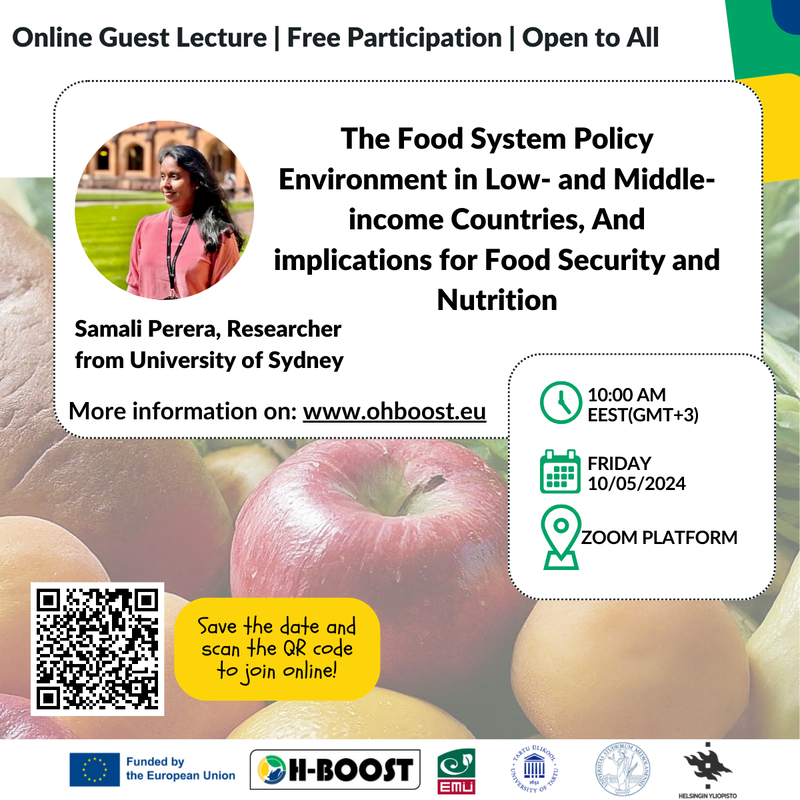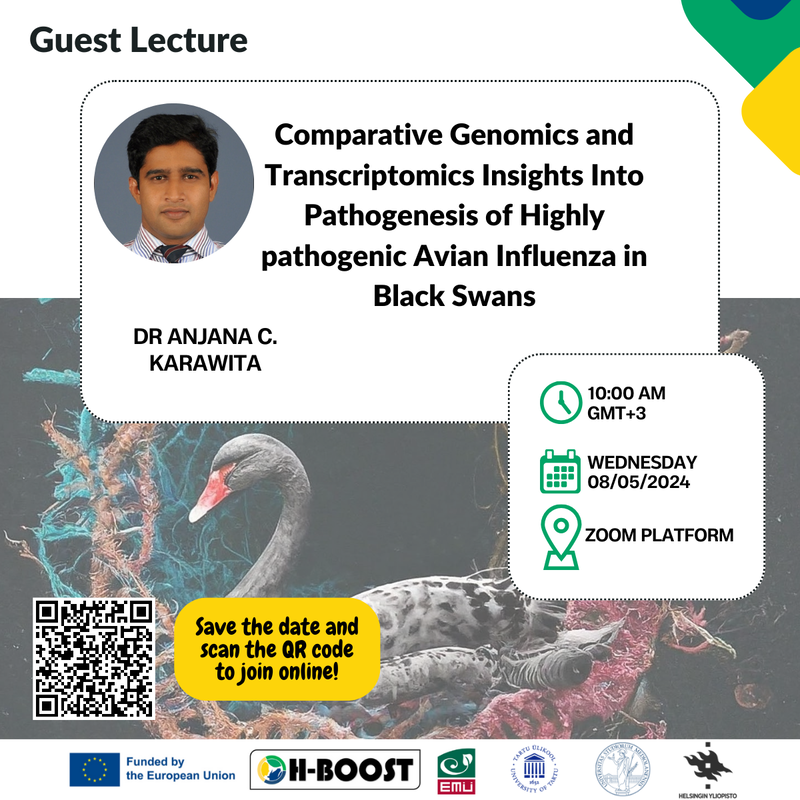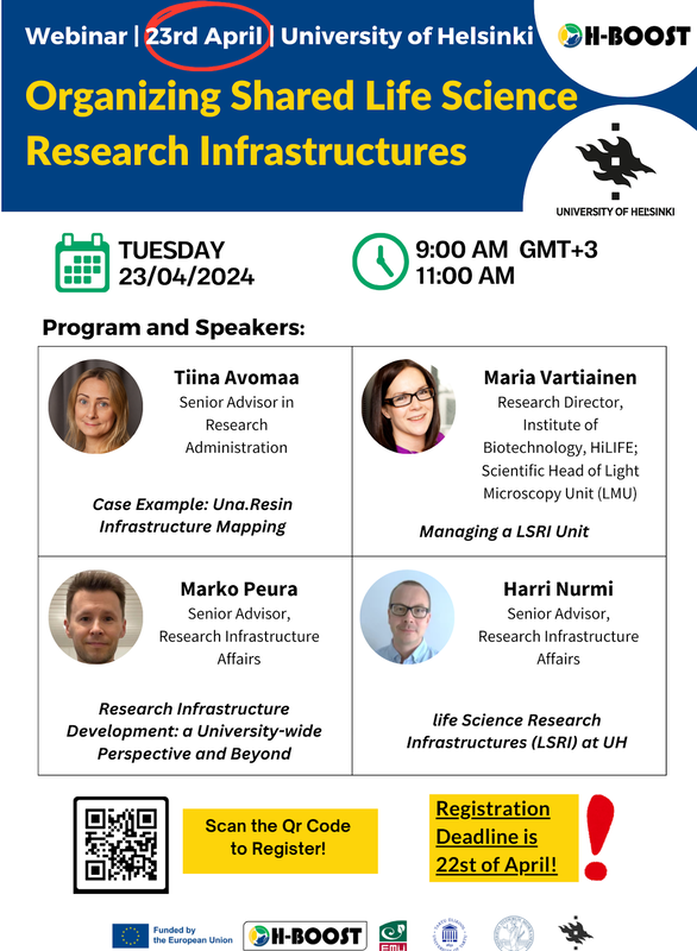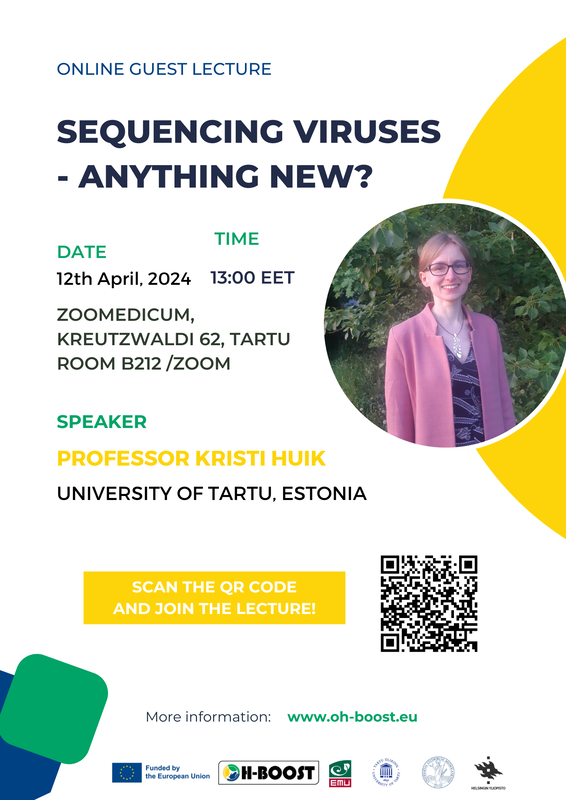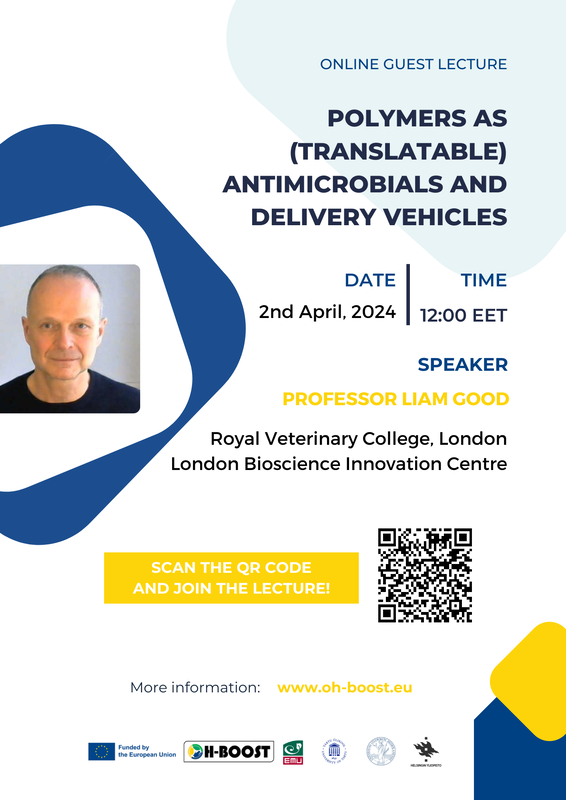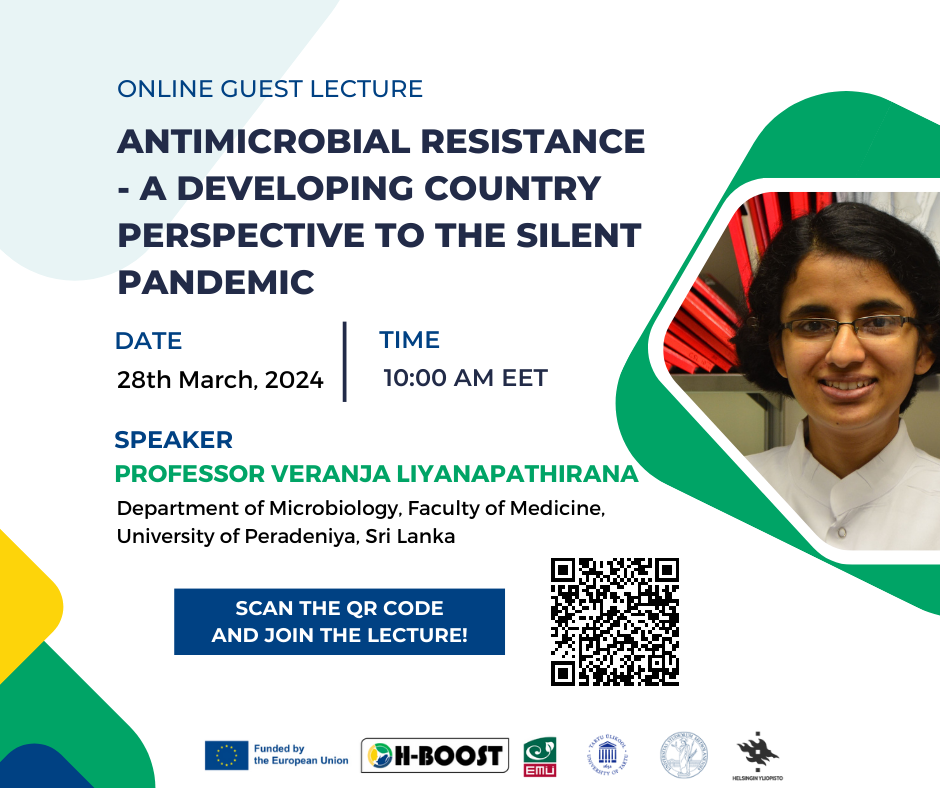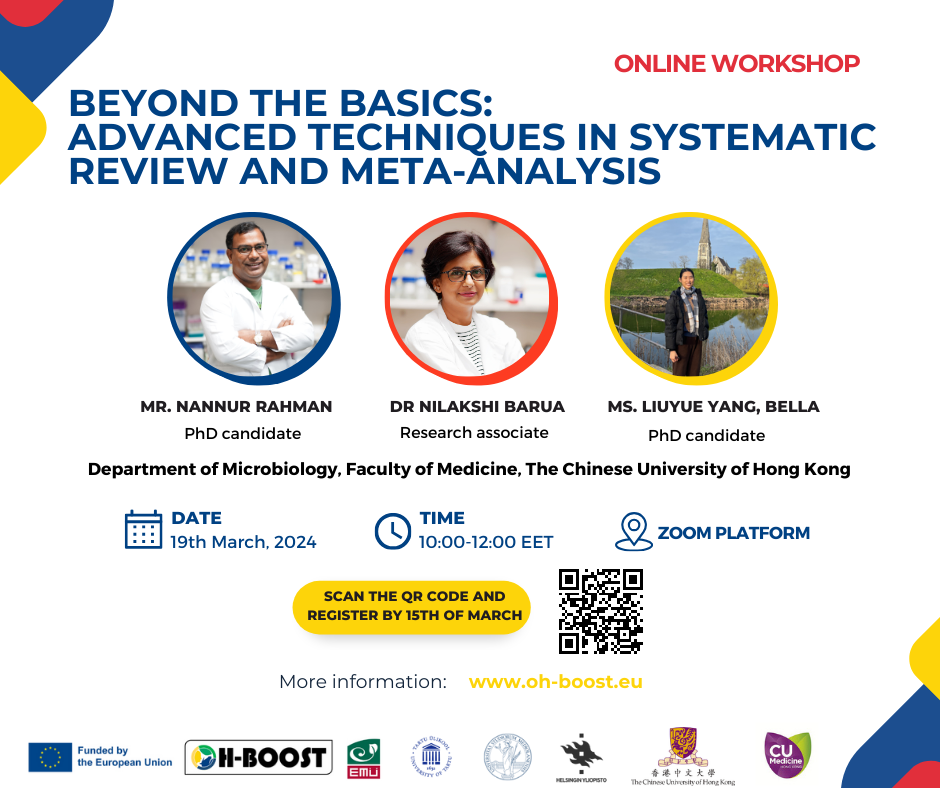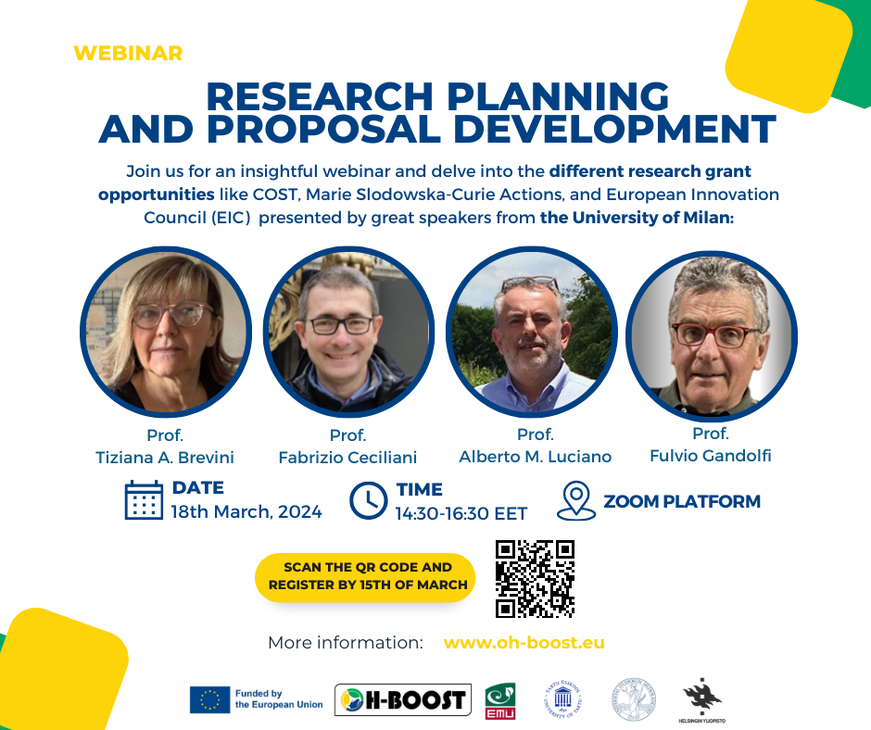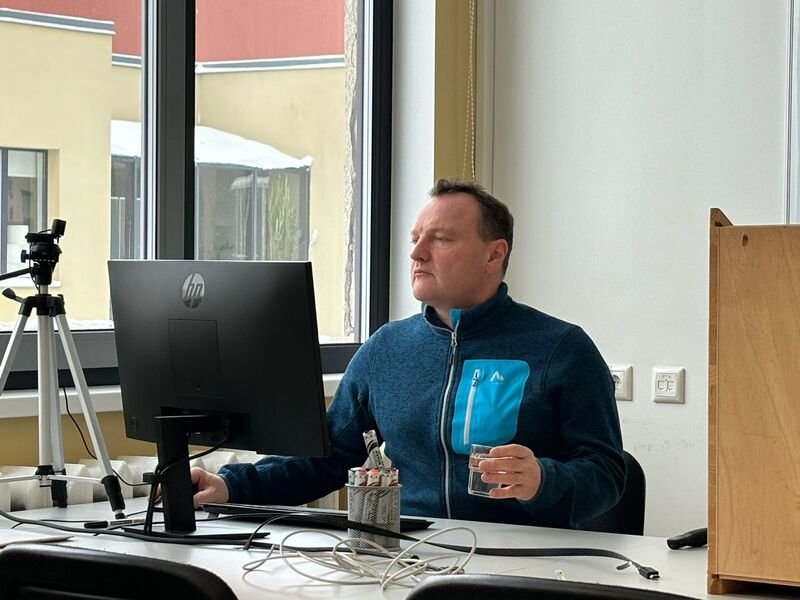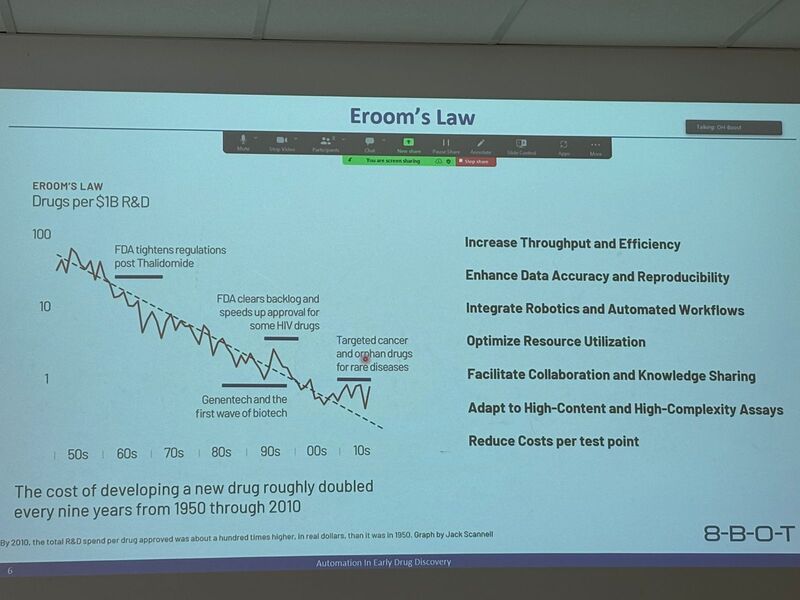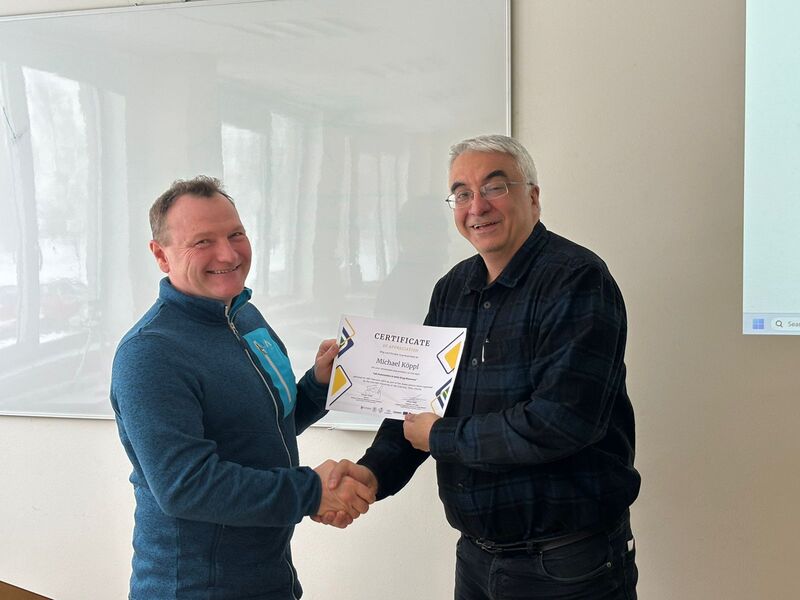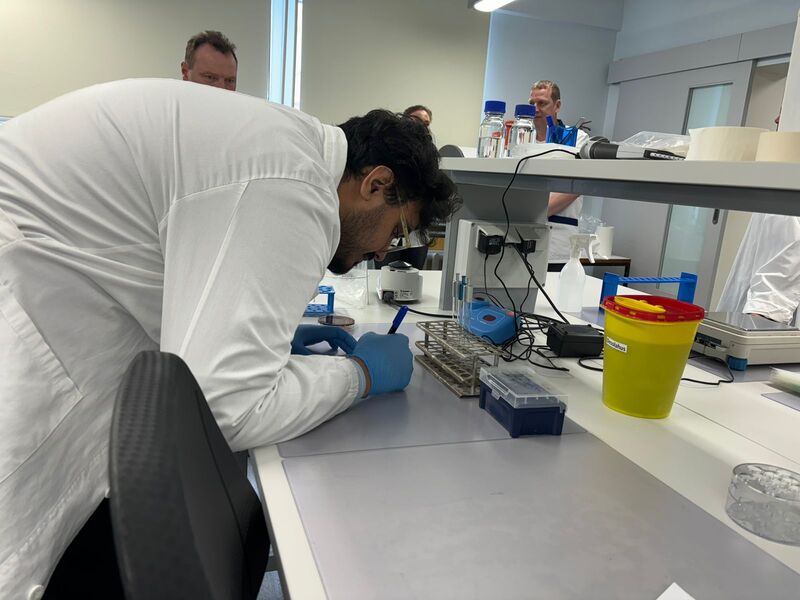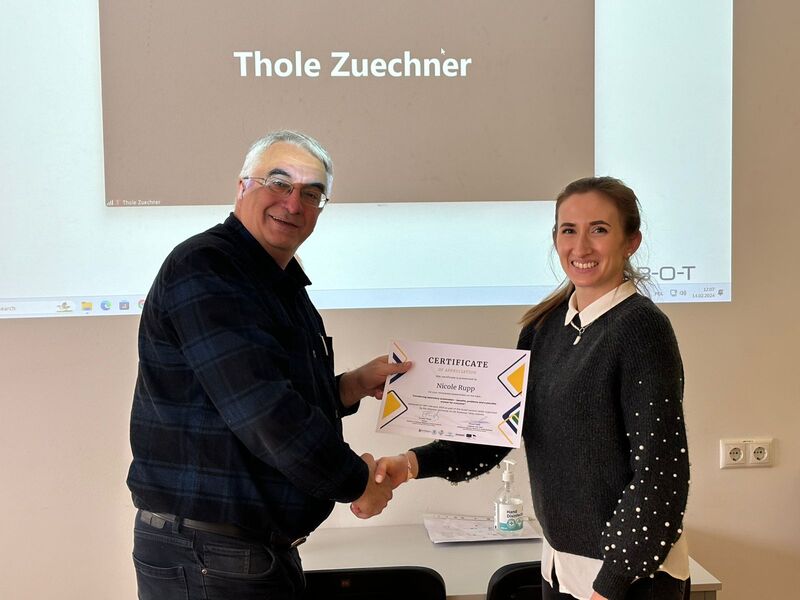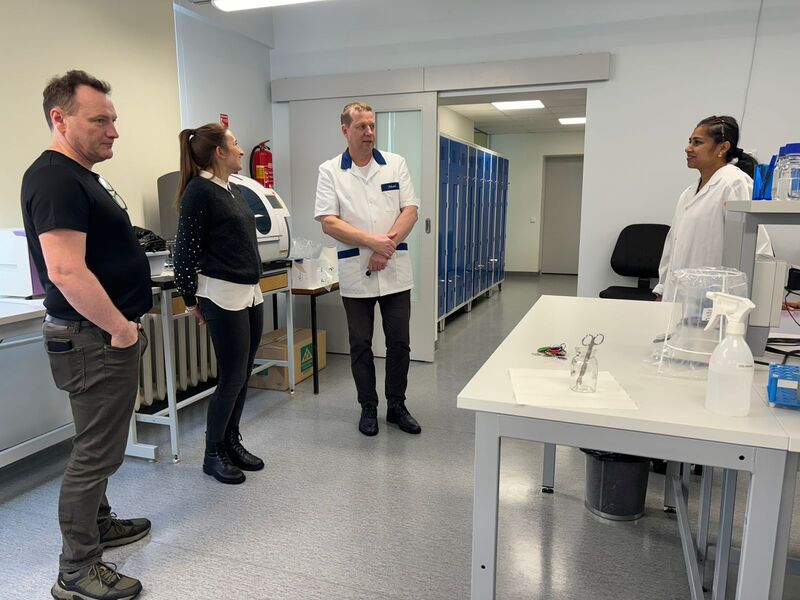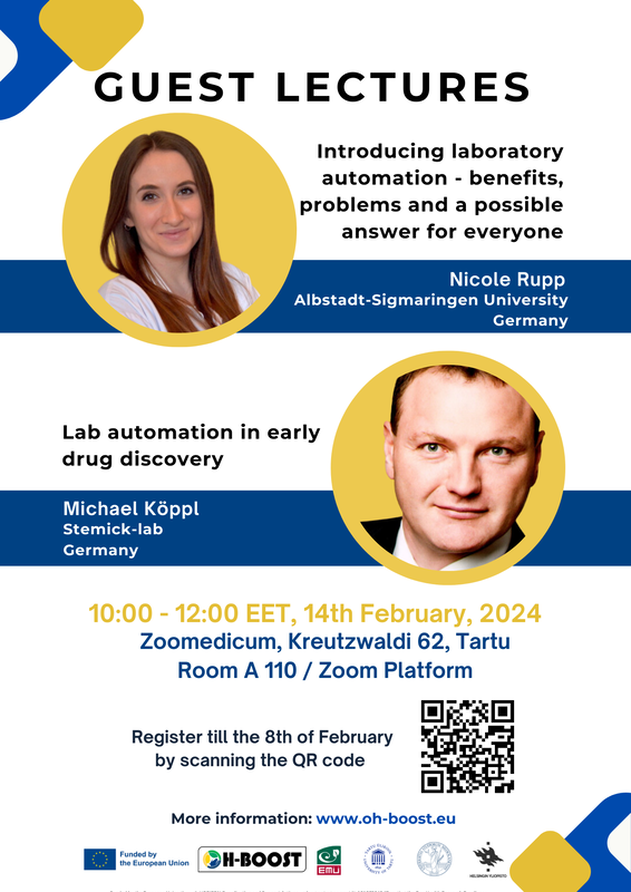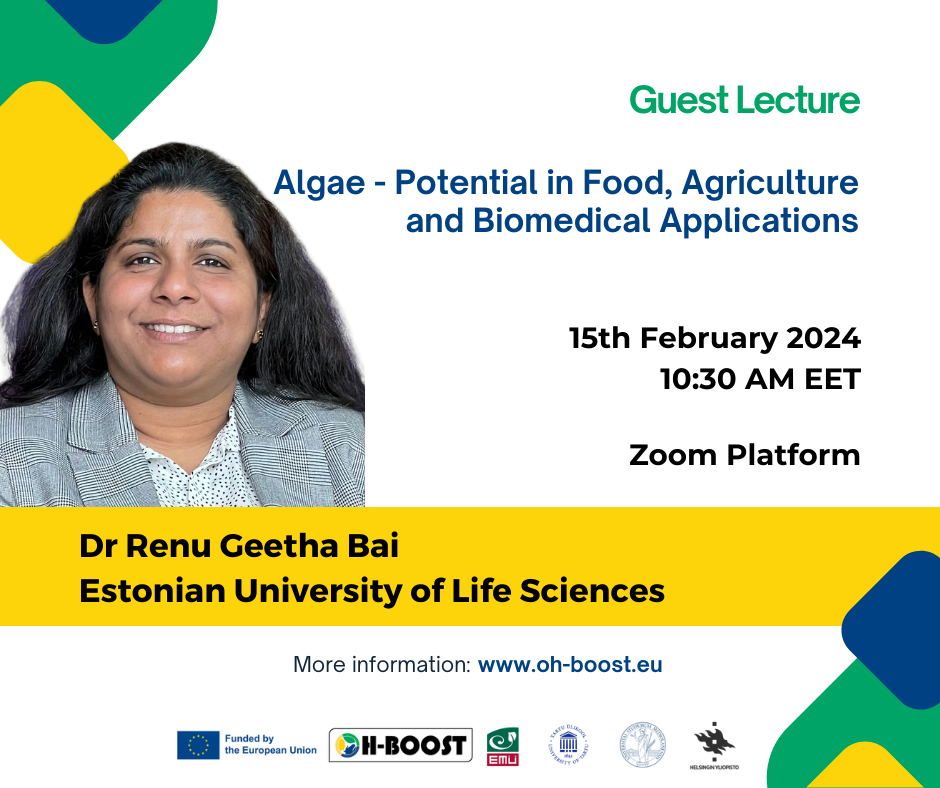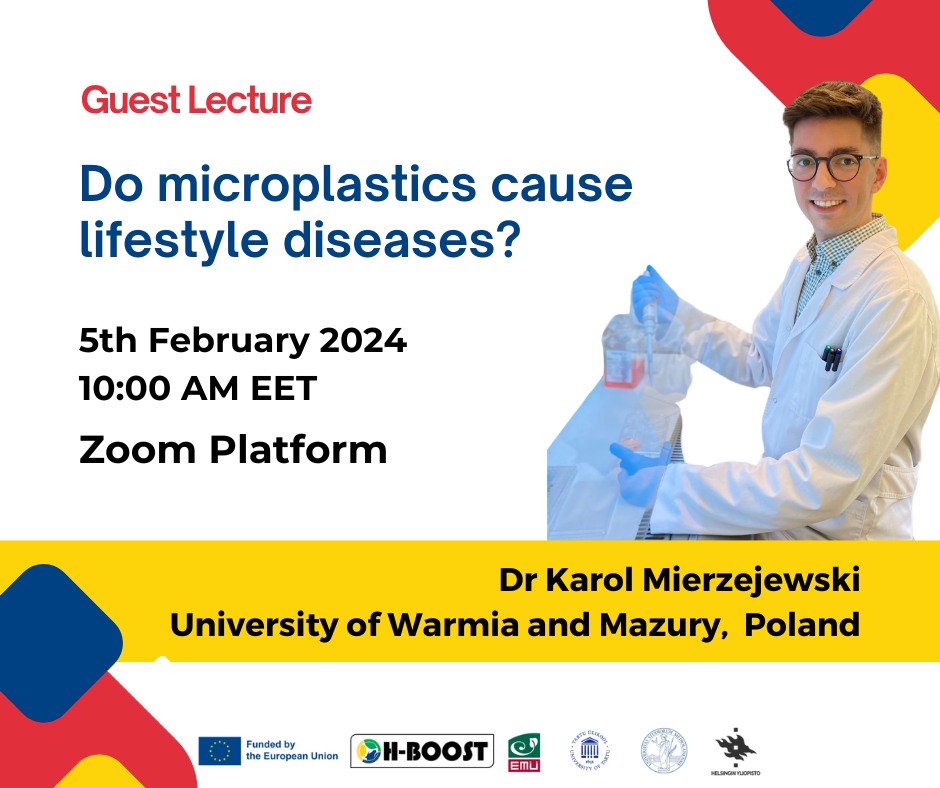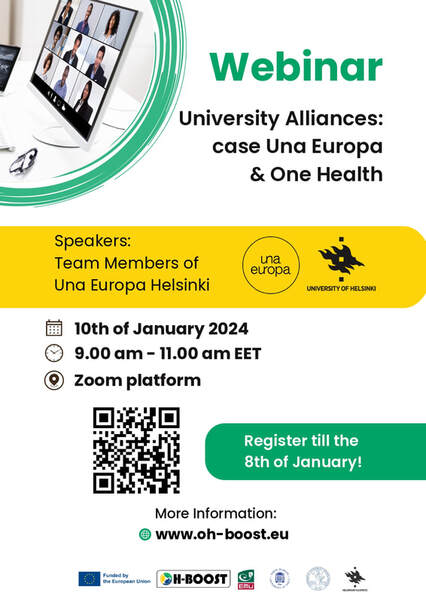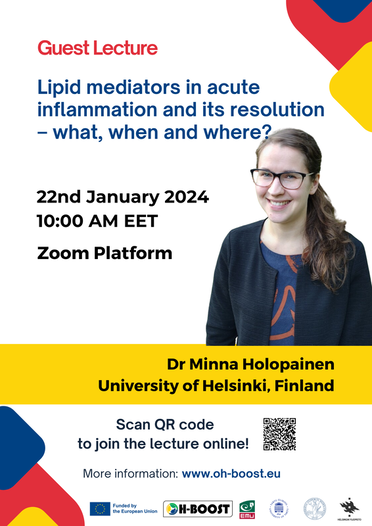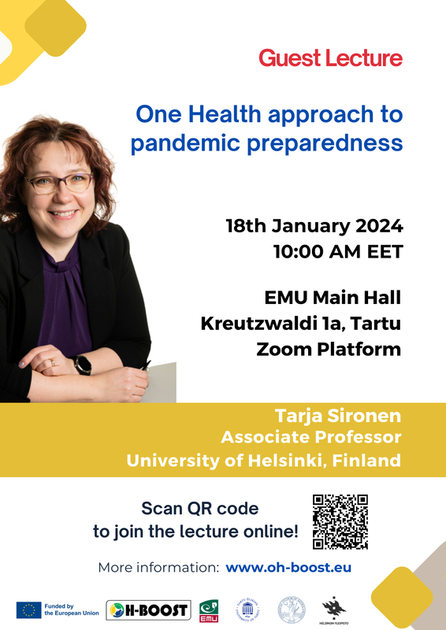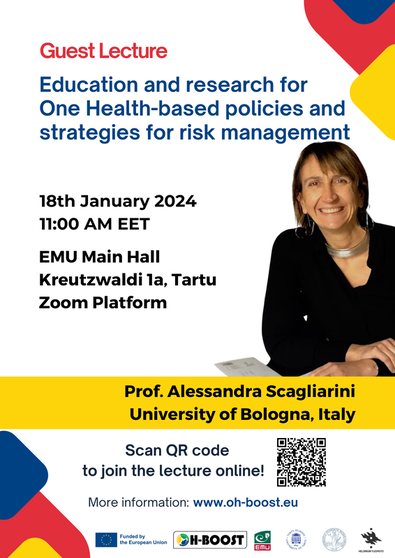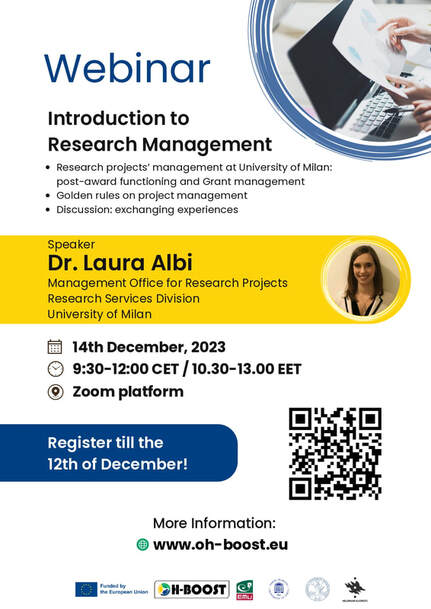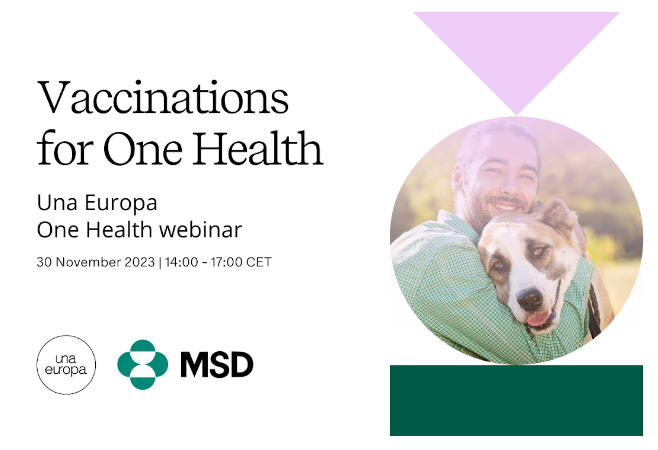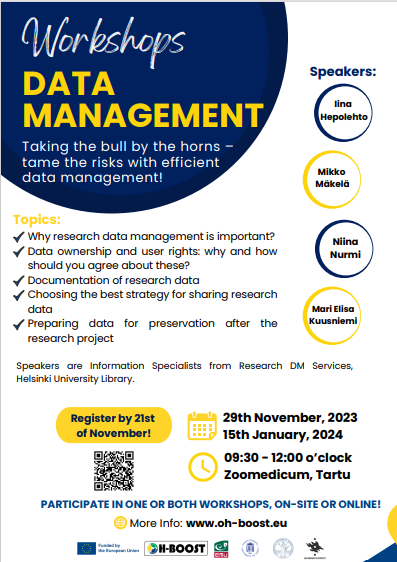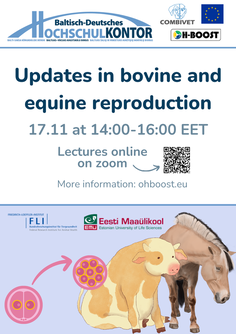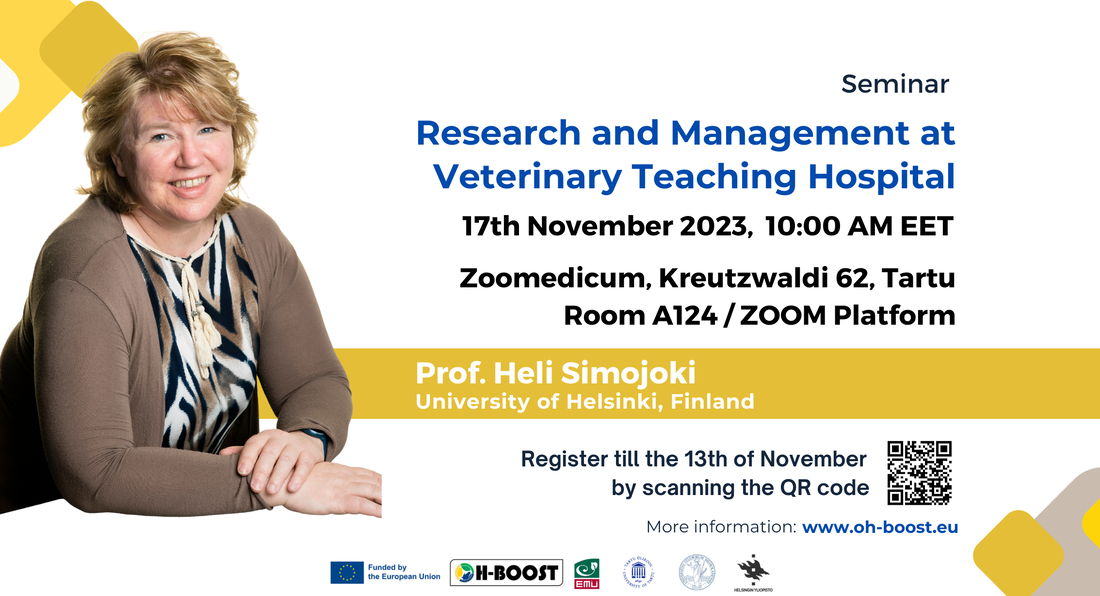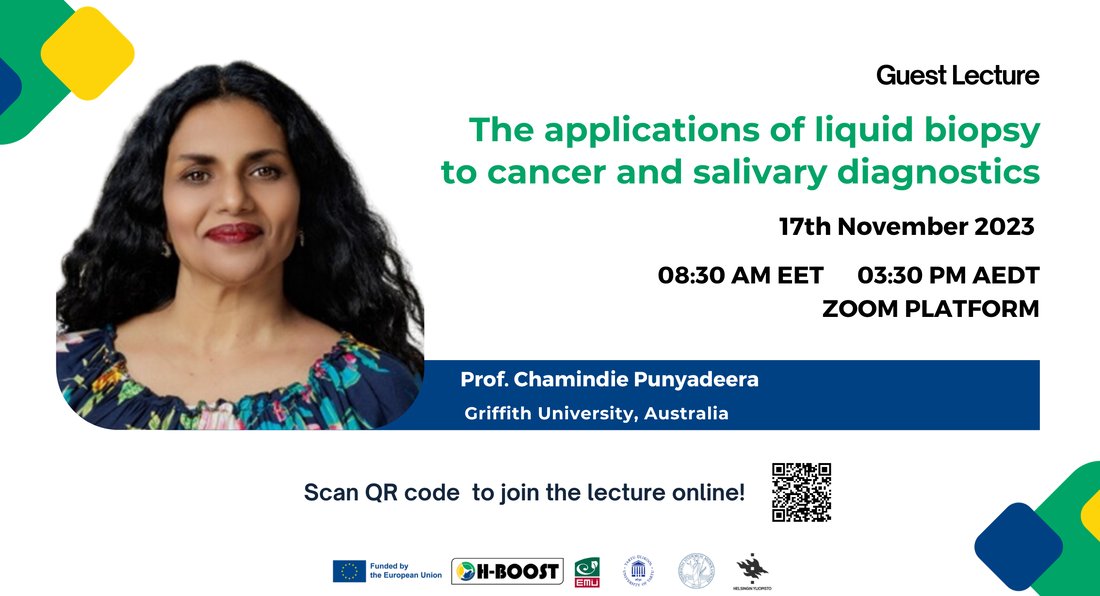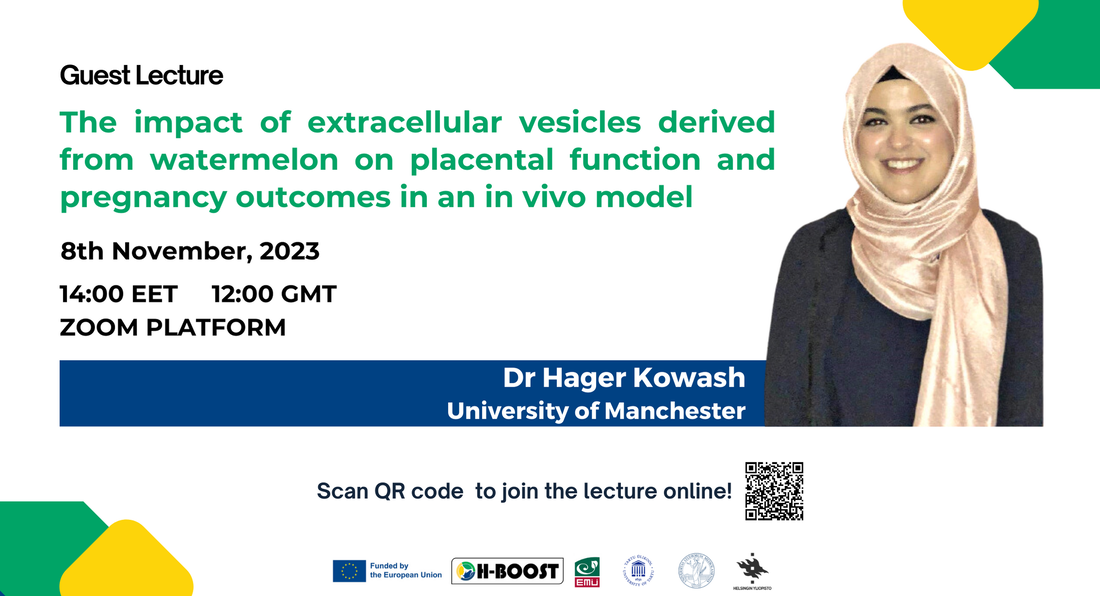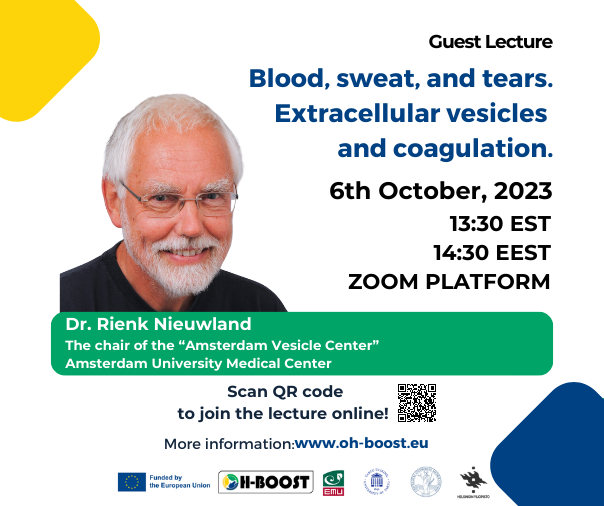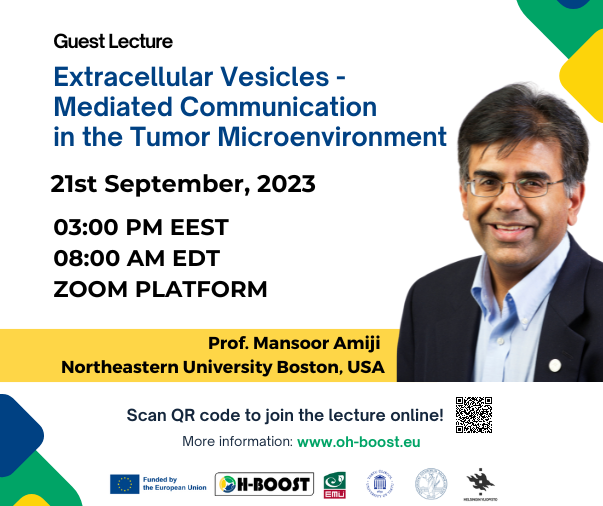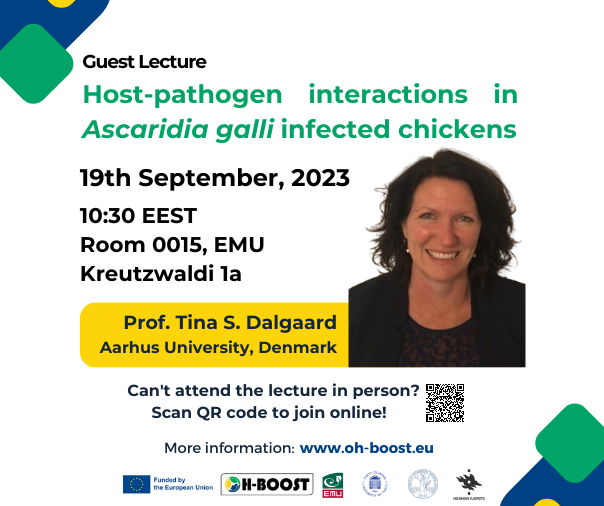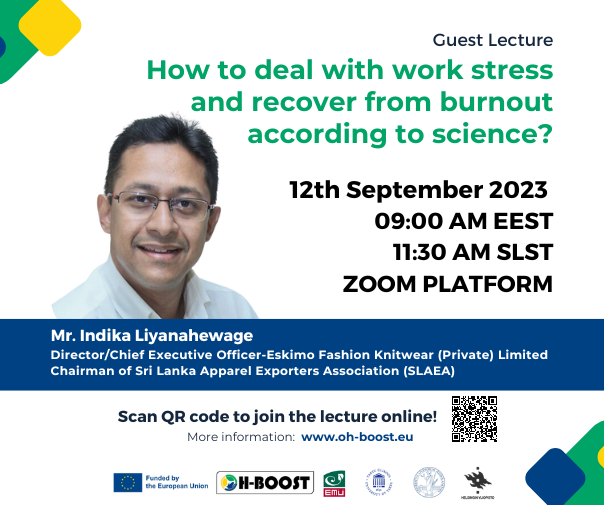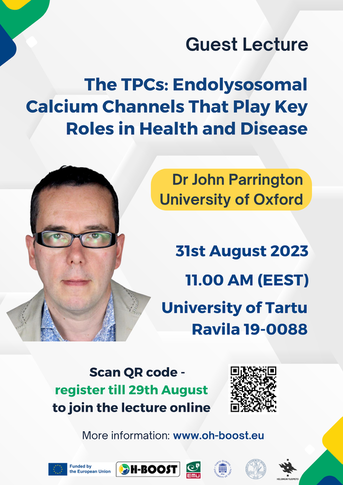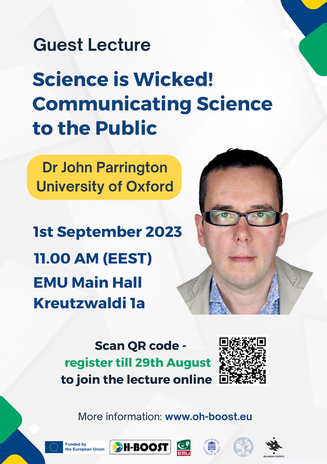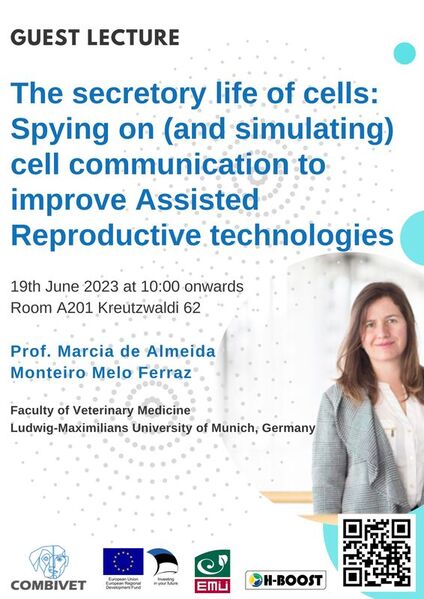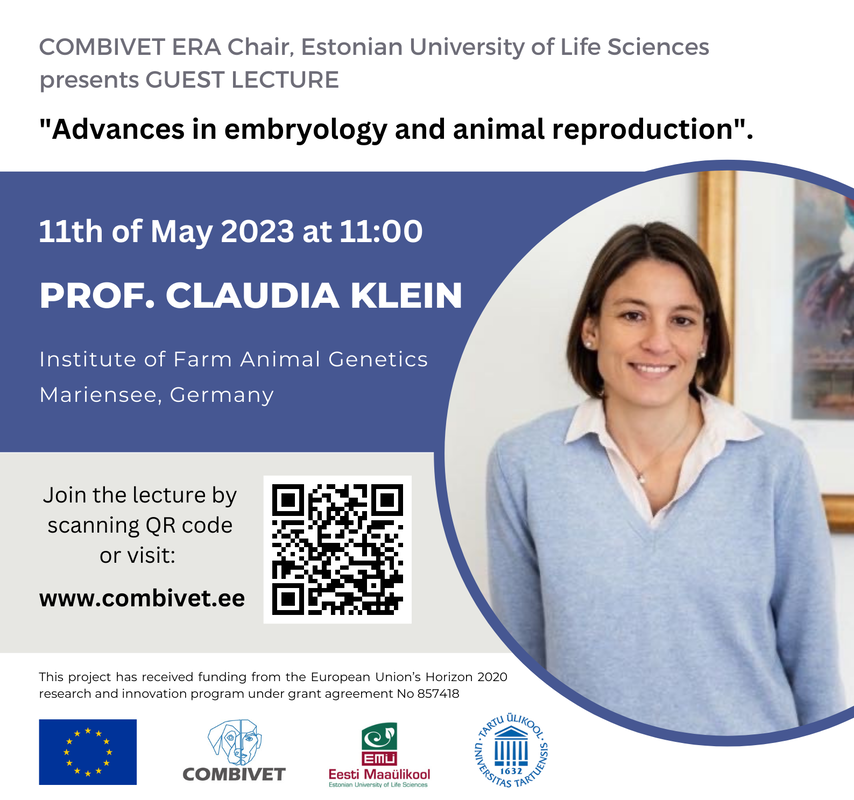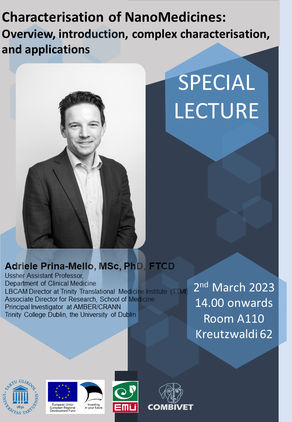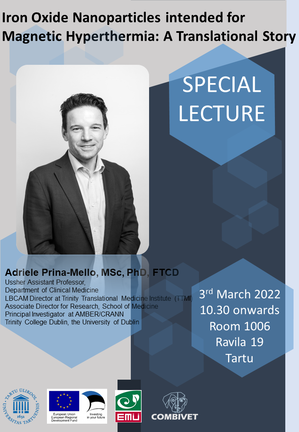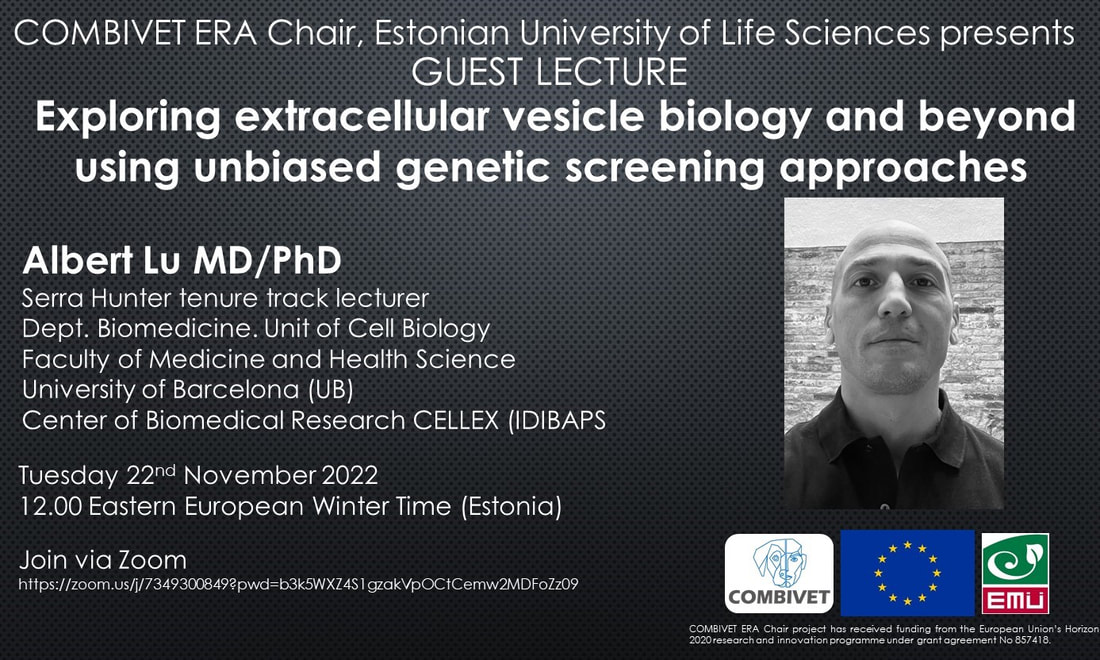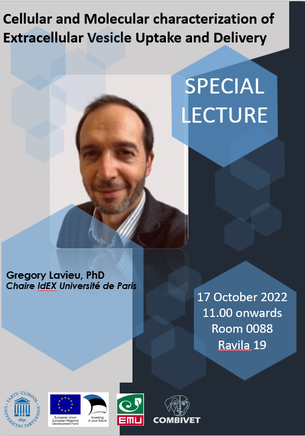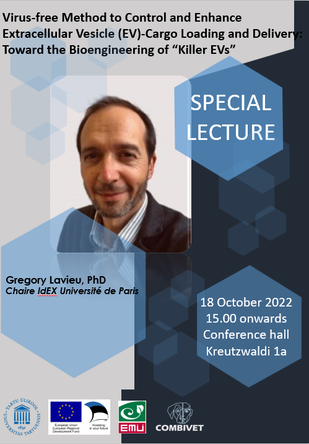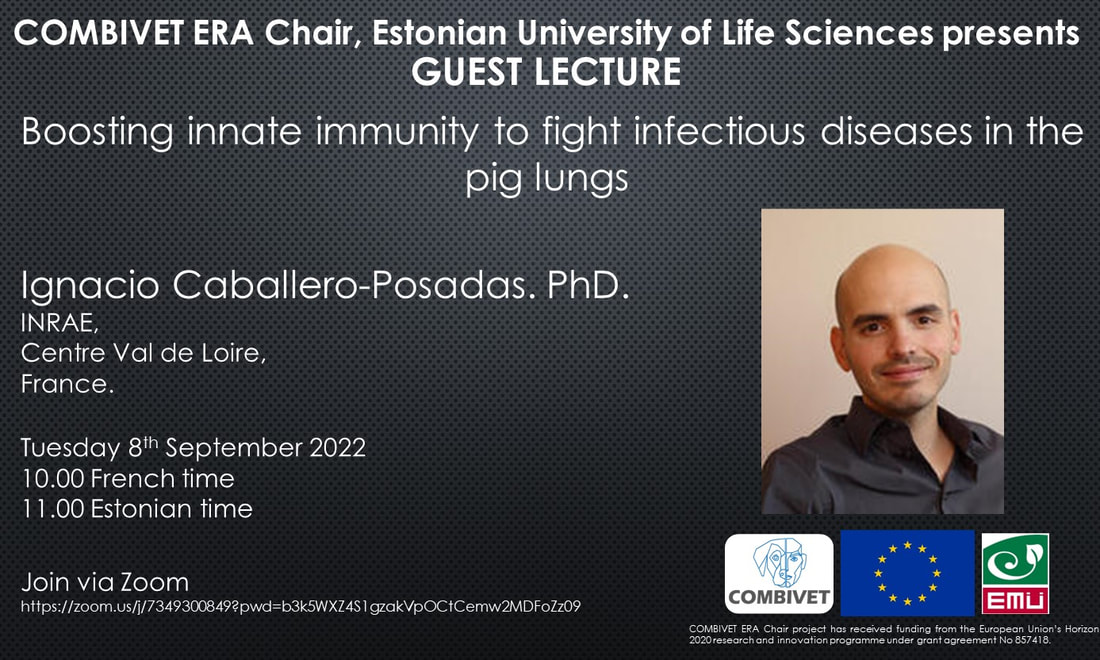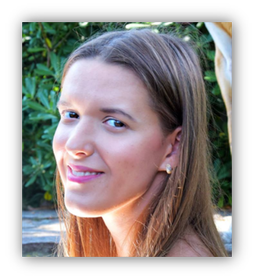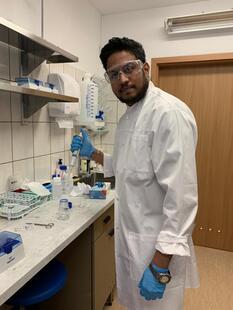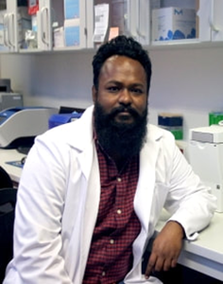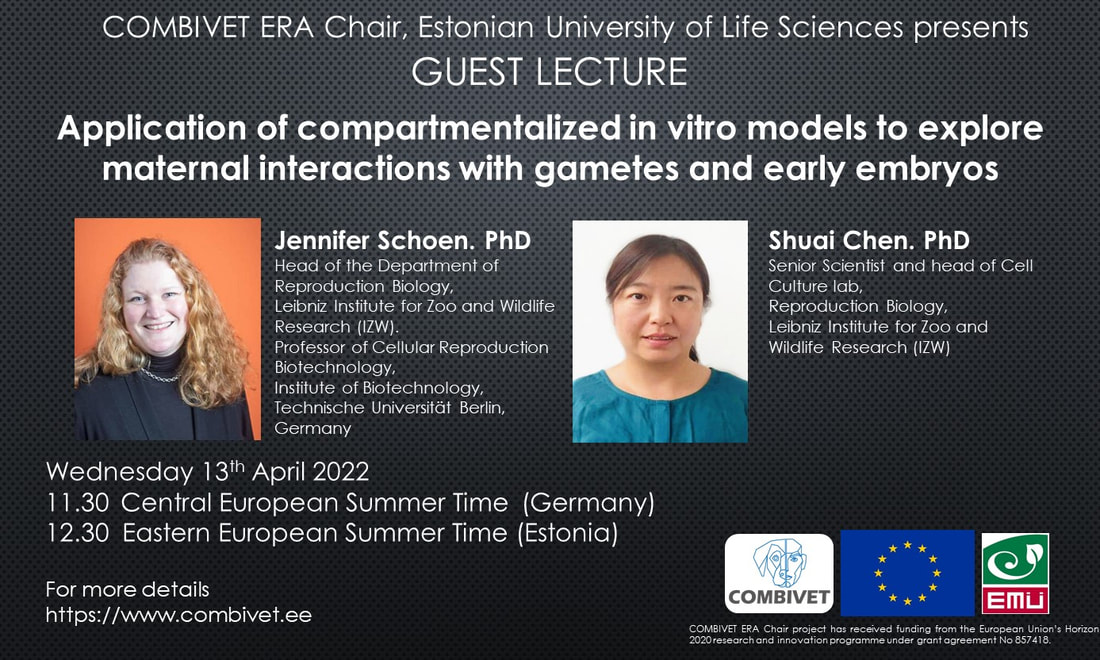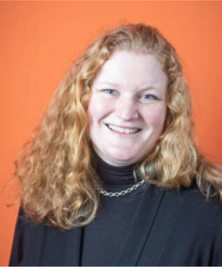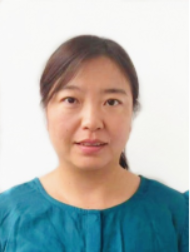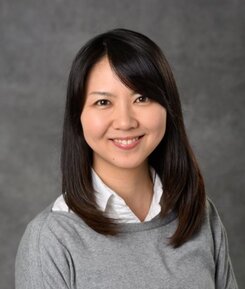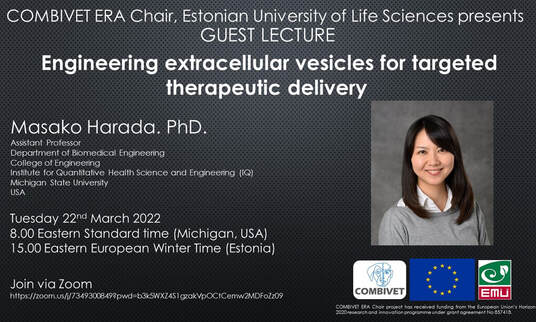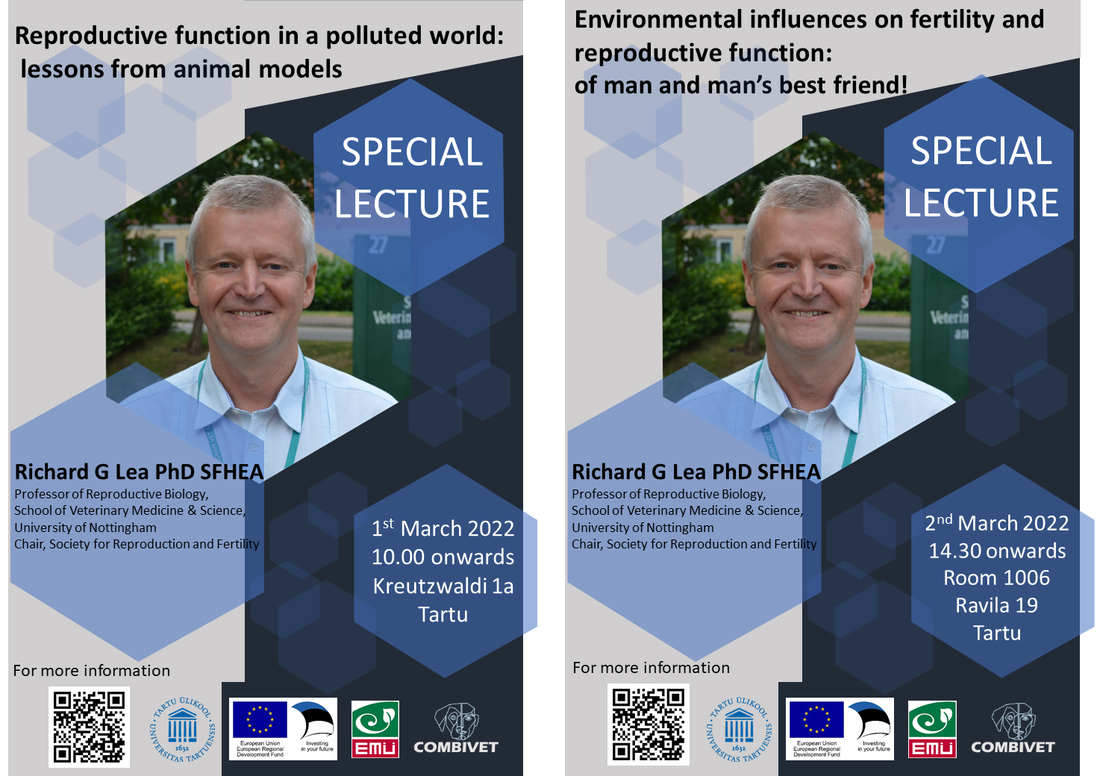Online Guest Lectures
From the University of Milan
"Data Management and Research Integrity - Best Practice Transfer"
|
Image integrity in scientific publication (Valentina Lodde) Data collection and analysis in scientific research often requires use of digital imaging. Moreover, scientists communicate their work to their peers and to non-scientist by means of images. This seminar will cover best practice in scientific images acquisition and processing, both for the purpose of data collection, organization, storage and security in the context of a Data Management Plan, and for the publication in scientific journals, conforming images to publisher’s requirements while ensuring image integrity. Conducting and reporting quantitative real time PCR experiments according to the MIQE Guidelines (Federica Franciosi) The Minimum Information for publication of Quantitative real-time PCR Experiments (MIQE) Guidelines were initially published in 2009 to overcome shortcomings in the reproducibility of quantitative PCR experiments. This seminar is designed to: - discuss the importance of MIQE in warranting the reproducibility of quantitative PCR experiments - identify shortcomings in a quantitative PCR experiment - plan MIQE-compliant quantitative PCR experiments - critically evaluate the quality of the results of quantitative PCR experiments The overarching aim of this seminar is to improve the integrity of performing and reporting qPCR experiments. |
Valentina Lodde
Valentina Lodde is Associate Professor of Animal Anatomy and Physiology, at the Department of Veterinary Medicine and Animal Science, University of Milan, since 2016. She graduated in 2002 in Biotechnology from the University of Milan and earned her PhD degree in Biotechnology applied to Veterinary Science at the same University in 2006. After a period of post-doctoral fellowship in Italy, she joined Professor John Peluso Laboratory at the University of Connecticut Health Center (USA), where she completed her post-doctoral training in 2011. Back to Italy she worked as researcher at the University of Milan until 2016. She was awarded with the LOREAL-UNESCO for women in Science National Award in 2006 and was the recipient of the Marie Curie Career Integration Grant (Individual Fellowship programme) in 2012. Dr Lodde’s research interest focuses on the determinants of mammalian female fertility, particularly the study of oocyte and embryo development. Major topics that characterize her investigations are the study of morphological and functional changes occurring in the nucleus of mammalian oocytes, the study of PGRMC1 function in ovarian somatic cells, oocytes and preimplantation embryos, and more recently the role of Reactive Oxygen Species in mammalian oogenesis and embryogenesis.
ORCID https://orcid.org/0000-0002-9768-2292
UNIMI webpage https://www.unimi.it/it/ugov/person/valentina-lodde
LAB Website http://www.redbiolab.unimi.it
Valentina Lodde is Associate Professor of Animal Anatomy and Physiology, at the Department of Veterinary Medicine and Animal Science, University of Milan, since 2016. She graduated in 2002 in Biotechnology from the University of Milan and earned her PhD degree in Biotechnology applied to Veterinary Science at the same University in 2006. After a period of post-doctoral fellowship in Italy, she joined Professor John Peluso Laboratory at the University of Connecticut Health Center (USA), where she completed her post-doctoral training in 2011. Back to Italy she worked as researcher at the University of Milan until 2016. She was awarded with the LOREAL-UNESCO for women in Science National Award in 2006 and was the recipient of the Marie Curie Career Integration Grant (Individual Fellowship programme) in 2012. Dr Lodde’s research interest focuses on the determinants of mammalian female fertility, particularly the study of oocyte and embryo development. Major topics that characterize her investigations are the study of morphological and functional changes occurring in the nucleus of mammalian oocytes, the study of PGRMC1 function in ovarian somatic cells, oocytes and preimplantation embryos, and more recently the role of Reactive Oxygen Species in mammalian oogenesis and embryogenesis.
ORCID https://orcid.org/0000-0002-9768-2292
UNIMI webpage https://www.unimi.it/it/ugov/person/valentina-lodde
LAB Website http://www.redbiolab.unimi.it
Federica Franciosi
Federica Franciosi earned her degree in Veterinary Medicine cum laude and her Ph.D. in Biotechnology from the University of Milan, developing nuclear transfer techniques and studying the interplay between somatic cells and the gamete during oocyte growth. She has been awarded the L'OREAL-UNESCO for Women in Science National Award prize for studies on epigenetic modifications during oocyte maturation conducted in collaboration with the French Institute of Agricultural Research (INRA, Tour), after which she completed a post-doc at the University of California San Francisco in the lab of Marco Conti, supported by a Marie Skłodowska-Curie international outgoing fellowship. During those years, she studied mechanisms controlling maternal mRNA translation. She received a tenure track position from the University of Milan in 2017 and became Associate Professor in 2021.
ORCID: https://orcid.org/0000-0001-8742-0291
UNIMI webpage: https://www.unimi.it/it/ugov/person/federica-franciosi1
LAB Website: http://www.redbiolab.unimi.it
Federica Franciosi earned her degree in Veterinary Medicine cum laude and her Ph.D. in Biotechnology from the University of Milan, developing nuclear transfer techniques and studying the interplay between somatic cells and the gamete during oocyte growth. She has been awarded the L'OREAL-UNESCO for Women in Science National Award prize for studies on epigenetic modifications during oocyte maturation conducted in collaboration with the French Institute of Agricultural Research (INRA, Tour), after which she completed a post-doc at the University of California San Francisco in the lab of Marco Conti, supported by a Marie Skłodowska-Curie international outgoing fellowship. During those years, she studied mechanisms controlling maternal mRNA translation. She received a tenure track position from the University of Milan in 2017 and became Associate Professor in 2021.
ORCID: https://orcid.org/0000-0001-8742-0291
UNIMI webpage: https://www.unimi.it/it/ugov/person/federica-franciosi1
LAB Website: http://www.redbiolab.unimi.it
Online Guest Lecture
"Size-dependent Impact of Hyaluronan on Embryo Development and
Pregnancy Outcome"
|
Topic: Size-dependent impact of hyaluronan on embryo development and pregnancy outcome
Speaker: Dr Ali A Fouladi-Nashta from Department of Veterinary Basic Sciences, Royal Veterinary College Date: 4th July 2024 Time: 11:00 in Estonian time Zoom: Oh-Boost zoom link Bio: Ali trained as a Veterinarian in Tehran University and served for about 7 years as a Lecturer in Animal Reproduction before moving to the United Kingdom for further education. He gained his MSc in 1995 and PhD in 1999 from the University of Edinburgh in Scotland. Ali undertook a PhD at the Roslin Institute where he worked alongside Professor Keith Campbell, creator of Dolly the cloned sheep from differentiated cells. Following this he moved on to undertake post-doctoral work at the University of Manchester, investigating the role of Leukaemia Inhibitory Factor with Sue Kimber. Subsequently, he joined Nottingham University as a Research Fellow working with Professor Bob Webb to investigate the effects of diet on oocyte & embryo quality in lactating dairy cows. In June 2006, Ali accepted a Lectureship position at the Royal Veterinary College (Department of Veterinary Basic Sciences). His research in the area of female reproduction continues. He was promoted to Senior Lecturer position in 2012 and then to Reader position in September 2016. |
Online Guest Lectures
Exploring One Health Research and Veterinary Oncology:
Insights from Veterinary Samples and Osteosarcoma in Dogs and Cats
|
Lecture 1: Veterinary Samples - A Promising Source for “One Health” Research
Time: 11:00 to 11:45 Speaker: Prof. Walter Ingrid Prof. Walter Ingrid is a distinguished biologist with a robust academic background, having earned her Mag. (1991) and Dr. (1994) degrees in Biology from the University of Vienna. She completed her Habilitation in Histology and Embryology at VetMed Uni Vienna in 2001. Professionally, she has served as an Assistant and later as an Associate Professor at VetMed Uni Vienna, and as a Visiting Professor at Tufts University. Currently, she leads the VetBiobank and the Workgroup Histology and Embryology at VetMed Uni. Her research interests include reproduction, vascular prostheses, and tumor biology, contributing significantly to these fields. Lecture 2: Osteosarcoma of Dogs and Cats
Time: 12:00 to 12:45 Speaker: Dr. Hlavaty Juraj Dr. Juraj Hlavaty is an accomplished biochemist and oncologist with a robust academic and research background. He earned his MSc in Biochemistry (1994) and PhD in Oncology (2000) from Comenius University, Bratislava. He has extensive professional experience, having worked at the Department of Molecular Virology at the Cancer Research Institute in Bratislava, followed by postdoctoral positions at the University of Veterinary Medicine Vienna. Since 2013, he has been a PostDoc at the Center of Pathobiology, VetMed Uni Vienna. His research focuses on tumor biology, particularly glioma and osteosarcoma, stem cells, and retrovirus/lentivirus vectors for gene therapy. |
Online Guest Lecture
How to Design One Health Related Phd Training -
Learning From the University of Helsinki
Schedule of the webinar:
10th of June 2024 at 13:00
About the Program:
10th of June 2024 at 13:00
About the Program:
- Description of the general structure of doctoral education at the University of Helsinki, which is organised under the University of Helsinki Doctoral School (UHDS) since 2023.
- Description of aims and focus of the Doctoral Programme of Clinical Veterinary Medicine (CVM), including management, research topics, specific requirements for students, criteria for admission, number of students.
|
About the Speaker:
Professor Anna Valros has an MSc in Zoology (1998), and an PhD in Animal behaviour and welfare (2003) from the University of Helsinki, Finland. Since 2008 she has been appointed as Professor of Animal Welfare at the Department of Production Animal Medicine, Faculty of Veterinary Medicine, University of Helsinki. She has authored or co-authored 134 peer-reviewed articles in international journals and has supervised 13 completed PhD-theses. Anna Valros is the director of the Doctoral Programme of Clinical Veterinary Medicine (CVM) and member of the board of the University of Helsinki Doctoral School (UHDS). |
Online guest lecture
Marcel I Ramirez
Role of Extracellular Vesicles During Parasite-host Cell
|
Topic: Role of extracellular vesicles during parasite-host cell interaction
Date: 7th June 2024 Time: 2 PM Estonian time (8 AM Brazil time) Zoom: Link here About the Speaker:
Marcel I Ramirez is a full professor from Carlos Chagas Institute-Fiocruz Paraná and a fellow from the Brazilian Research Council (CNPq). He holds a degree in Biomedicine from the University of Antofagasta Chile, master's degree in Microbiology and Immunology from the Federal University of São Paulo, UNIFESP and a PhD in Biological Sciences (Molecular Biology) UNIFESP. Post-doctorate studies In Cell Biology department, Unifesp Brazil, Immunology department London Metropolitan University, England. Cell biology department Royal Holloway College, London University, Biochemical department Max Planck Institute Germany and Immunology department German Trias and Pujol Institute Badalona Spain. He has experience in the area of Parasitology with an emphasis on Cell Biology and immunology, working mainly in the areas of parasite-host cell interaction. His laboratory focuses on characterising extracellular vesicles working mainly with Trypanosoma cruzi and Giardia intestinalis parasites. |
Online Workshop
Developing Multidisciplinary One Health Research Projects for
PhD Students/Young Researchers
Lecturers: Associate Professor Tarja Sironen and Post-doctoral Researcher Ruut Uusitalo
|
In this workshop, we will discuss the challenges of building research projects that encompass multiple disciplines, diverse methods, and varying expectations. One Health research integrates both life and social sciences, using quantitative and qualitative methods. It includes humans, non-humans, and different environments across the globe, requiring consideration of many ethical perspectives.
We will showcase two different projects: one in Kenya and one in Finland, discussing lessons learned during their implementation. The Kenyan project aims to understand infectious disease emergence and the various drivers impacting this process, involving ecology, geography, medicine, veterinary medicine, and social sciences. In Finland, we will discuss the utilization of various data types in tick and mosquito projects and vector-borne disease studies. Predictive modeling studies combine data on vectors, pathogens, hosts, patients, anthropogenic factors, climate, and the environment from different sources. These diverse perspectives create both challenges and advantages for data usage. There will also be time reserved for discussing the One Health projects of the participants. Time: 6th of June 2024, 10:00-12:00 EEST Place: Zoom Platform Registration link open by the 5th of June 2024: Click Here |
Tarja Sironen, PhDAssociate Professor of Emerging Infectious Diseases at the University of Helsinki, Faculties of Medicine and Veterinary Medicine, and Director of the Helsinki One Health network. She leads the project “Resilient and Just Systems,” which combines life and social sciences across eight faculties of the University of Helsinki to search for sustainable and just solutions to global challenges, including pandemics. Dr. Sironen is a virologist leading a research group studying zoonotic microbes, focusing on rodent- and bat-borne microbes and the drivers of their emergence. Her research includes wildlife and domestic animal surveillance, virus discovery and genomic analysis, virus isolations, work on in vitro and in vivo model systems, and the development of diagnostic tools and vaccines. Her goal is to find solutions to mitigate the impact of outbreaks, with research focused on infectious diseases in Europe and Africa. An essential component of her work is communicating scientific findings to stakeholders and the general public, for which she has been awarded excellence in science communication during the COVID-19 pandemic. Her team is currently involved in the avian influenza response as the virus emerges in new species and areas globally.
Ruut Uusitalo, PhDPost-doctoral researcher conducting multidisciplinary research that combines GIScience, virology, and public health. Dr. Uusitalo’s research interests include investigating the distribution patterns and transmission routes of zoonotic diseases, and how factors such as climate, ecological conditions, socioeconomic factors, and human activity affect the risk of vector-borne diseases. While her current research focuses primarily on Africa, she is also interested in the distribution and dynamics of vector-borne diseases in Northern Europe. Her research activities include designing sampling strategies, conducting fieldwork for sample collections, performing laboratory analyses to screen pathogens, and utilizing GIS analyses and disease risk modeling methods with satellite-based environmental data. By collaborating with local and international partners, as well as colleagues within the EID research group, her goal is to generate novel insights aimed at preventing future zoonotic diseases and improving public health outcomes. For more information on her previous studies, visit Ruut Uusitalo's ORCID account.
Register here.
Ruut Uusitalo, PhDPost-doctoral researcher conducting multidisciplinary research that combines GIScience, virology, and public health. Dr. Uusitalo’s research interests include investigating the distribution patterns and transmission routes of zoonotic diseases, and how factors such as climate, ecological conditions, socioeconomic factors, and human activity affect the risk of vector-borne diseases. While her current research focuses primarily on Africa, she is also interested in the distribution and dynamics of vector-borne diseases in Northern Europe. Her research activities include designing sampling strategies, conducting fieldwork for sample collections, performing laboratory analyses to screen pathogens, and utilizing GIS analyses and disease risk modeling methods with satellite-based environmental data. By collaborating with local and international partners, as well as colleagues within the EID research group, her goal is to generate novel insights aimed at preventing future zoonotic diseases and improving public health outcomes. For more information on her previous studies, visit Ruut Uusitalo's ORCID account.
Register here.
Webinar by University of Tartu
Methods for Studying Human Gut Virome
|
Date: 4th of June 2024, 10:00 EEST, Zoom platform
Registration by the 2nd of June: https://forms.office.com/e/nXRMG1fXgw Speaker: Radko Avi, Associate Professor, University of Tartu ❝ Summary of my scientific activities:
I have been involved quite a long time in studying HIV-1 drug resistance mutations, particularly in the relatively rear Estonian HIV-1 CRF06_cpx epidemiological situation. In addition, I have contributed to the establishment of the Estonian HIV database. I have also conducted research on associations of human genetic factors (mainly chemokine receptors and their ligands CCL3L1, CCR5, etc) linkage with blood born virus infections including HIV, HBV, HCV and GBV-C. Since the beginning of COVID pandemic, I participated in the development of SARS-CoV-2 genotyping assays, sequencing and mapping the epidemiological situation in Estonia. Following the epidemic my research focus has shifted primarily to investigating the human gut microbiome and virome. ❞ |
Webinar by University of Helsinki, OH-BOOST and EMÜ
Get ready for the best practices in laboratory management with the "Laboratory Management: EV Research" webinar on May 17th, hosted by OH-Boost in cooperation with Estonian University of Life Sciences and University of Helsinki.
|
Schedule (Finnish time - GMT+3)
Click HERE to register. Registration is open until 15th of May. |
Speakers
MAIJA PUHKA
Maija Puhka (PhD, Associate Prof., F) is senior scientist and head of the HiPREP Core facility at the Institute for Molecular Medicine Finland in Helsinki. She did her PhD (2011) in the Institute of Biotechnology, University of Helsinki, studying the intricate structures of the endoplasmic reticulum and Golgi during cell cycle by electron and light microscopy. After that, she has embarked to a post-doc and a long-standing career on EV research, technology and infrastructure service development. The past projects include several that connected academia and biobanks with companies to develop EV technologies and innovations, and long-term research projects focused on EV RNA biomarkers for diabetic kidney disease and prostate cancer. Maija is a cofounder of the globally first academic EV Core facility (2016) and the founder of the HiPREP core (2020) dedicated to high-end sample preparations for nucleic acid research and extracellular vesicle analytics. She belongs to the leadership of the Urine task Force of the Standardization and Rigor committee in the International Society for Extracellular Vesicles (ISEV) and is the secretary of the Finnish Society of Extracellular Vesicles (FISEV). She organizes the Nordic Science Club for presentations and discussions of the contemporary EV science. Maija currently supervises one post-doc and three laboratory coordinators and serves in the follow-up groups of three PhD students. She has filed three innovation disclosures in the EV field, and with h-index of 19, her publications have received over 2000 citations.
KARINA BARREIRO
Dr Karina Barreiro is a postdoctoral researcher and a technical specialist in FIMM HiPREP core, supervised by Adjunct professor Maija Puhka. Her postdoctoral research focus on urinary extracellular vesicles as kidney liquid biopsies for early diagnosis and prognosis of diabetic kidney disease. During her PhD, Dr Barreiro also assessed pre-analytical variables affecting urinary extracellular vesicles quality for transcriptomics applications. Before starting her PhD, Dr Barreiro got a bachelor’s degree at the University and Buenos Aires, Argentina and a master’s degree in neuroscience from the University of Oviedo, Spain and worked in various laboratories gaining insight in ovary toxicology, neuroscience and antithrombotic molecules.
DULMINI N. SAPUGAHAWATTE, PhD'
Dulmini Nanayakkara Sapugahawatte earned her PhD in Microbiology from the Chinese University of Hong Kong in 2021, focusing on characterizing Streptococcus agalactiae in humans and animals, including antimicrobial resistance and zoonotic traits. Later, as a postdoc at CUHK, she continued research on antimicrobial resistance, one-health, and microbiome. Dulmini received the President’s Award for Scientific Research in 2019 and the National Research Council Merit Award in 2021. Currently, she is a research fellow at the Estonian University of Life Sciences, investigating the antimicrobial properties of extracellular vesicles from plants and animals.
MIKAEL NIKU
Mikael Niku is a senior lecturer at Veterinary Biosciences, University of Helsinki. He leads the Developmental Interactions research group, investigating how the maternal microbiota modulates the perinatal development of the intestinal immune system.
Niku studied biochemistry and developmental biology at the University of Oulu. He did his PhD on the development of the bovine immune system and circulating stem cells at the University of Helsinki. He then worked as lecturer in physiology and anatomy at the Department of Human Nutrition, studying the impacts of diet on intestinal health. In 2015, he visited the Veterinary Faculty at Melbourne University.
Niku’s group has studied the early development of the gut microbiota in cattle, horses and pig. Currently he is especially interested in how the metabolites and extracellular vesicles produced by maternal microbiota influence the mammalian fetus. He is actively collaborating with cattle and pig health researchers in Finland and elsewhere. Niku is in the board of the Finnish Society for Immunology.
JUSTUS REUNANEN
Dr. Reunanen has worked as an Academy of Finland (AF) Postdoctoral Research Fellow in a three-year AF -funded research project “Molecular characterization of the human intestinal microbiota-host interactome” (2011-2014, 332 000 €). Next he received funding from AF to AF Research Fellow project “Fundamental molecular mechanisms behind microbial colonization of the human intestinal tract” (2016-2021, 909 000 €) at the Biocenter Oulu (BCO) and University of Oulu (UO), Finland, where he started as a PI on September 2016. In 2016 Dr. Reunanen received a 588 000 € funding from the BCO to conduct a four-year Spearhead project “Innovative approaches to discover novel antibiotics – metamining the human intestinal microbiota” (2016-2019). In 2018 Dr. Reunanen was nominated as a Spearhead project partner in BCO-funded Emerging project “Fetal microbiome and exosomes, developing immune system and health in children” (2018-2022) led by Prof. Terhi Tapiainen (MD, pediatrician). In 2019, Dr. Reunanen received a 416 000 € funding from the BCO for the Spearhead project “Secreted vesicles of the human intestinal microbiota in health and disease” (2020-2023). In 2023 Dr. Reunanen and Prof. Tapiainen received a 456 000 eur funding from the BCO to conduct the Spearhead project “Gut microbiome in obesity from birth to adulthood” (2024-2027). The research group of Dr. Reunanen has developed methodologies for extraction of EVs from multiple clinical sample sources and for the isolation of macromolecules in the EVs along with stream-lined in-house bioinformatics pipelines. The research group of Dr. Reunanen currently comprises of 1 postdoc and 5 PhD-students.
Click HERE to register.
MAIJA PUHKA
Maija Puhka (PhD, Associate Prof., F) is senior scientist and head of the HiPREP Core facility at the Institute for Molecular Medicine Finland in Helsinki. She did her PhD (2011) in the Institute of Biotechnology, University of Helsinki, studying the intricate structures of the endoplasmic reticulum and Golgi during cell cycle by electron and light microscopy. After that, she has embarked to a post-doc and a long-standing career on EV research, technology and infrastructure service development. The past projects include several that connected academia and biobanks with companies to develop EV technologies and innovations, and long-term research projects focused on EV RNA biomarkers for diabetic kidney disease and prostate cancer. Maija is a cofounder of the globally first academic EV Core facility (2016) and the founder of the HiPREP core (2020) dedicated to high-end sample preparations for nucleic acid research and extracellular vesicle analytics. She belongs to the leadership of the Urine task Force of the Standardization and Rigor committee in the International Society for Extracellular Vesicles (ISEV) and is the secretary of the Finnish Society of Extracellular Vesicles (FISEV). She organizes the Nordic Science Club for presentations and discussions of the contemporary EV science. Maija currently supervises one post-doc and three laboratory coordinators and serves in the follow-up groups of three PhD students. She has filed three innovation disclosures in the EV field, and with h-index of 19, her publications have received over 2000 citations.
KARINA BARREIRO
Dr Karina Barreiro is a postdoctoral researcher and a technical specialist in FIMM HiPREP core, supervised by Adjunct professor Maija Puhka. Her postdoctoral research focus on urinary extracellular vesicles as kidney liquid biopsies for early diagnosis and prognosis of diabetic kidney disease. During her PhD, Dr Barreiro also assessed pre-analytical variables affecting urinary extracellular vesicles quality for transcriptomics applications. Before starting her PhD, Dr Barreiro got a bachelor’s degree at the University and Buenos Aires, Argentina and a master’s degree in neuroscience from the University of Oviedo, Spain and worked in various laboratories gaining insight in ovary toxicology, neuroscience and antithrombotic molecules.
DULMINI N. SAPUGAHAWATTE, PhD'
Dulmini Nanayakkara Sapugahawatte earned her PhD in Microbiology from the Chinese University of Hong Kong in 2021, focusing on characterizing Streptococcus agalactiae in humans and animals, including antimicrobial resistance and zoonotic traits. Later, as a postdoc at CUHK, she continued research on antimicrobial resistance, one-health, and microbiome. Dulmini received the President’s Award for Scientific Research in 2019 and the National Research Council Merit Award in 2021. Currently, she is a research fellow at the Estonian University of Life Sciences, investigating the antimicrobial properties of extracellular vesicles from plants and animals.
MIKAEL NIKU
Mikael Niku is a senior lecturer at Veterinary Biosciences, University of Helsinki. He leads the Developmental Interactions research group, investigating how the maternal microbiota modulates the perinatal development of the intestinal immune system.
Niku studied biochemistry and developmental biology at the University of Oulu. He did his PhD on the development of the bovine immune system and circulating stem cells at the University of Helsinki. He then worked as lecturer in physiology and anatomy at the Department of Human Nutrition, studying the impacts of diet on intestinal health. In 2015, he visited the Veterinary Faculty at Melbourne University.
Niku’s group has studied the early development of the gut microbiota in cattle, horses and pig. Currently he is especially interested in how the metabolites and extracellular vesicles produced by maternal microbiota influence the mammalian fetus. He is actively collaborating with cattle and pig health researchers in Finland and elsewhere. Niku is in the board of the Finnish Society for Immunology.
JUSTUS REUNANEN
Dr. Reunanen has worked as an Academy of Finland (AF) Postdoctoral Research Fellow in a three-year AF -funded research project “Molecular characterization of the human intestinal microbiota-host interactome” (2011-2014, 332 000 €). Next he received funding from AF to AF Research Fellow project “Fundamental molecular mechanisms behind microbial colonization of the human intestinal tract” (2016-2021, 909 000 €) at the Biocenter Oulu (BCO) and University of Oulu (UO), Finland, where he started as a PI on September 2016. In 2016 Dr. Reunanen received a 588 000 € funding from the BCO to conduct a four-year Spearhead project “Innovative approaches to discover novel antibiotics – metamining the human intestinal microbiota” (2016-2019). In 2018 Dr. Reunanen was nominated as a Spearhead project partner in BCO-funded Emerging project “Fetal microbiome and exosomes, developing immune system and health in children” (2018-2022) led by Prof. Terhi Tapiainen (MD, pediatrician). In 2019, Dr. Reunanen received a 416 000 € funding from the BCO for the Spearhead project “Secreted vesicles of the human intestinal microbiota in health and disease” (2020-2023). In 2023 Dr. Reunanen and Prof. Tapiainen received a 456 000 eur funding from the BCO to conduct the Spearhead project “Gut microbiome in obesity from birth to adulthood” (2024-2027). The research group of Dr. Reunanen has developed methodologies for extraction of EVs from multiple clinical sample sources and for the isolation of macromolecules in the EVs along with stream-lined in-house bioinformatics pipelines. The research group of Dr. Reunanen currently comprises of 1 postdoc and 5 PhD-students.
Click HERE to register.
Guest Lecture
Prof. Tuuli Metsvaht, head of Children’s Clinic, Tartu University Hospital
|
About Speaker:
Dr. Tuuli Metsvaht is a distinguished paediatrician and professor, serving as the head of the Children’s Clinic at Tartu University Hospital and as a professor at the University of Tartu. With over 30 years of experience in paediatric intensive care, her research focuses on pharmacology, including PKPD studies and international trials in neonates and children. Dr. Metsvaht leads the innovative International Project NeoIPC, dedicated to enhancing infection control in neonatal intensive care units. Her contributions to paediatric medicine have earned her widespread acclaim and admiration.
Dr. Tuuli Metsvaht is a distinguished paediatrician and professor, serving as the head of the Children’s Clinic at Tartu University Hospital and as a professor at the University of Tartu. With over 30 years of experience in paediatric intensive care, her research focuses on pharmacology, including PKPD studies and international trials in neonates and children. Dr. Metsvaht leads the innovative International Project NeoIPC, dedicated to enhancing infection control in neonatal intensive care units. Her contributions to paediatric medicine have earned her widespread acclaim and admiration.
Online Guest Lecture
Samali Perera, Researcher from University of Sydney
|
Topic:
The food system policy environment in low- and middle-income countries, and implications for food security and nutrition Join the lcture online with Zoom Link! Biography: Samali Perera is a PhD candidate and an agriculture and food system researcher from University of Sydney. Samali is originally from Sri Lanka where she completed her bachelor’s honors degree of Agriculture specialized in Horticultural sciences and gained experience in agricultural research and policy. She is currently pursuing her PhD in postharvest and molecular biology, and undertaking research in agricultural and food policies, food security, and sustainable food production. In particular, Samali is leading a study in Sri Lanka contributing to the study of vegetables for sustainable healthy diets from a food systems and policy research perspective. |
Online Guest Lecture
Dr. Anjana C. Karawita
|
Topic:
Comparative genomics and transcriptomics insights into pathogenesis of highly pathogenic avian influenza in black swans Join the lcture online with Zoom Link! About Speaker:
Dr. Anjana Karawita serves as a Senior Research Scientist and a veterinary pathologist at CSIRO, Australia's National Science Agency, specializing in anatomical pathology, pathobiology, and genomics. He obtained a Ph.D. in 2021 in comparative pathology and genomics from the University of Queensland, Australia, and a Master of Philosophy degree in 2017 in Veterinary Anatomic Pathology from the University of Peradeniya, Sri Lanka. Throughout his career, Dr. Karawita has contributed to veterinary pathobiology research, with his work published in peer-reviewed journals. Currently, as a Senior Research Scientist within the Pathology and Pathogen Biology Team at the Australian Center for Disease Preparedness at CSIRO, he focuses on exotic disease diagnostics, genomic and transcriptomic analyzes and their correlation with morphology, particularly about viral diseases in avian and other species. Dr. Karawita welcomes collaborations and takes pleasure in mentoring and supervising students, aiming to inspire the future generation of scientists. |
Webinar | 23rd April | Universtiy of Helsinki
|
- Maria Vartiainen
Maria Vartiainen in UH's Research portal: https://researchportal.helsinki.fi/en/persons/maria-vartiainen
- Marko Peura
- Harri Nurmi
Senior advisor Harri Nurmi graduated M.Sc. in 2009, and received his PhD in 2017, both degrees are from the University of Helsinki. During his time as a researcher, he focused on biomolecular research on vascular growth factors. Since 2020 he has been working in the Research Services at UH. He has worked both at the faculty level assignments and he is currently in university-level position. In recent years, he has focused especially on the development of life science research infrastructures.
Harri Nurmi in UH’s Research Portal: https://researchportal.helsinki.fi/en/persons/harri-nurmi
Guest Lecture
Prof. Kristi Huik, University of Tartu, Estonia
|
Associate Professor Kristi Huik is a pharmacist by training and has >15 years of experience in clinical-molecular research. Her PhD study explored the associations between HIV infection and host genetics. At the same time, she developed HIV and HCV drug resistance testing in Estonia for clinical and screening purposes. Kristi did her post-doc at the National Cancer Institute in the National Institutes of Health (USA) where she studied population genetics of HIV reservoir and the microbiome of people with HIV.
Beyond HIV research she has participated in studies focusing on neonatal infections and their relationship to microbial colonisation, and antibacterial resistance. During the COVID-19 pandemic, she led national-wide SARS-CoV-2 sequencing in Estonia. Now, her research concentrates on microbiome development in humans, especially on the role of viruses in hospital and community settings including viral transmission between different populations. In addition, Kristi is continuing to study HIV and HCV resistance in Estonia working in collaboration with Estonian hospitals and the Health Board, and being an Estonian representative in the European Society for Translational Antiviral Research. Join the lecture online: link
|
Online Guest Lecture
Prof. Liam Good, Royal Veterinary College, London
London Bioscience Innovation Centre
|
Prof. Liam completed a PhD in Canada on RNA biology and yeast genetics and then postdoctoral training at the Department of Cell and Molecular Medicine at the Panum Institute in Copenhagen. Liam was next a Group Leader and Associate Professor at the Department of Cellular and Molecular Biology at the Karolinska Institute in Stockholm. Liam is now a Professor of Microbiology and Biotechnology at the Royal Veterinary College, London, with research commercialisation responsibilities as Associate Dean for Innovation. His interests include RNA biology, antimicrobials and cellular delivery technologies. Liam is a founding Director and CSO at Tecrea Ltd; a clinical-stage biotechnology company located in London.
Join the lecture online: link
|
Online Guest Lecture
Prof. Veranja Liyanapathirana
Join the online lecture and dig into the topic of "Antimicrobial resistance - a developing country perspective to the silent pandemic" presented by Professor Veranja Liyanapathirana, Department of Microbiology, Faculty of Medicine, University of Peradeniya, Sri Lanka
|
Professor Veranja Liyanapathirana, a Microbiology expert at the University of Peradeniya, earned her medical degree in 2006 and later delved into research, obtaining an MPhil in 2011. Pursuing doctoral studies in pneumococcal diseases at the Chinese University of Hong Kong from 2011 to 2015, she expanded her focus to antibiotic resistance and molecular epidemiology. Now back in Sri Lanka, she is actively securing grants to establish molecular detection methods for antibiotic resistance. Her primary objective is to develop community-centric strategies to curb the spread of antibiotic resistance.
|
Online workshop
“Beyond the Basics: Advanced Techniques in Systematic Review and
Meta-Analysis”
Speakers:
1. Dr Nilakshi Barua
Research associate, Department of Microbiology, Faculty of Medicine, The Chinese University of Hong Kong, Hong Kong. Nilakshi's research interests include studying antimicrobial resistance in both Gram-positive and Gram-negative bacteria, as well as researching the gut microbiome. Additionally, she is involved in 3D skin culture and utilizes Caenorhabditis elegans as an infection model.
2. Ms. Liuyue Yang, Bella
PhD candidate, Department of Microbiology, Faculty of Medicine, The Chinese University of Hong Kong, Hong Kong. Liuyue Yang, Bella, is currently a Ph.D. student with a research focus on the epidemiology of antimicrobial-resistant bacteria.
3. Mr. Nannur Rahman
PhD candidate, Department of Microbiology, Faculty of Medicine, The Chinese University of Hong Kong, Hong Kong.Nannur completed his B.S.c (Hons) and M.Sc. (Applied Nutrition and Food Technology, taught program) from Islamic University, Bangladesh. He pursued a Master's degree in science (research program) in Human Nutrition at Ghent University in Belgium with the support of the VLIRUOS scholarship. After that, he worked in the Department of Food Technology and Nutritional Science, at Mawlana Bhashani Science and Technology University, Bangladesh. Nannur then decided to advance his career by pursuing further studies under the Hong Kong Ph.D. Fellowship Scheme. His research project focuses on the modulation of gut microbiota under the influence of probiotics, antibiotics, and other functional food.
1. Dr Nilakshi Barua
Research associate, Department of Microbiology, Faculty of Medicine, The Chinese University of Hong Kong, Hong Kong. Nilakshi's research interests include studying antimicrobial resistance in both Gram-positive and Gram-negative bacteria, as well as researching the gut microbiome. Additionally, she is involved in 3D skin culture and utilizes Caenorhabditis elegans as an infection model.
2. Ms. Liuyue Yang, Bella
PhD candidate, Department of Microbiology, Faculty of Medicine, The Chinese University of Hong Kong, Hong Kong. Liuyue Yang, Bella, is currently a Ph.D. student with a research focus on the epidemiology of antimicrobial-resistant bacteria.
3. Mr. Nannur Rahman
PhD candidate, Department of Microbiology, Faculty of Medicine, The Chinese University of Hong Kong, Hong Kong.Nannur completed his B.S.c (Hons) and M.Sc. (Applied Nutrition and Food Technology, taught program) from Islamic University, Bangladesh. He pursued a Master's degree in science (research program) in Human Nutrition at Ghent University in Belgium with the support of the VLIRUOS scholarship. After that, he worked in the Department of Food Technology and Nutritional Science, at Mawlana Bhashani Science and Technology University, Bangladesh. Nannur then decided to advance his career by pursuing further studies under the Hong Kong Ph.D. Fellowship Scheme. His research project focuses on the modulation of gut microbiota under the influence of probiotics, antibiotics, and other functional food.
|
19th of March 2024, 10:00 -12:00 EET
Workshop plan: 10:00-10:30 "Introduction to Systematic Review and Meta-Analysis", Dr Nilakshi Barua 10:30-11:00 "Covidence: A tool for systematic review", Ms. Liuyue Yang, Bella 11:00-12:00 "Strategic Approaches to Systematic Review Development, PROSPERO Registration, and Meta-Analysis Techniques", Mr. Nannur Rahman |
Webinar
“Research Planning and Proposal Development" led by experts from
the University of Milan
Speakers:
Prof. Tiziana A. Brevini serves as Full Professor of Anatomy and Embryology at the University of Milan, Italy. Her main area of research focuses on the understanding of cell differentiation and commitment, epigenetic, paracrine and mechanosensing-related controls in mammalian cell fate and embryo. She has acted as MC Chair of the recent COST Action “CellFit”, which bloomed into 3 successfully ongoing European Projects.
Prof. Fabrizio Ceciliani is a full professor of Veterinary pathology. His interest lies in innate immunity and molecular pathology, with a focus on system biology applied to livestock diseases. He is the coordinator of the Veterinary and Animal Sciences PhD program at the University of Milan and the Editor-in-Chief of the Veterinary Research Communications Journal.
Prof. Alberto M. Luciano - Professor of Veterinary Anatomy and Physiology at the University of Milan. His has been working on the role of progesterone in regulating granulosa cell apoptosis. His current research topic focuses on mammalian oocyte differentiation and on cellular and molecular determinants that confer oocyte meiotic and embryonic developmental competence. Co-founder of the Reproductive and Developmental Biology Laboratory (ReDBioLab), which coordinates since 2005. He tutored three MSCA PFs and is deputy coordinator of the H2020 MSCA-ITN-ETN "EUROVA".
Prof. Fulvio Gandolfi - Full Professor of Anatomy and Physiology of Domestic Animals at the University of Milan has been working in the field of biotechnology since the mid ‘80s. His research has spanned from embryology, ovarian physiology, transgenesis, stem cells to cell reprogramming, developing in vitro models. Now he is working on an advanced model of the fish intestine for developing sustainable diets, evaluating single nutrients or preventing microplastic transfer into the human food chain. He is supported by an EIC Pathfinder grant that has evolved in a Proof-of-concept study supported by private investors.
The event is a part of the Best Practise Transfer from the University of Milan.
Prof. Tiziana A. Brevini serves as Full Professor of Anatomy and Embryology at the University of Milan, Italy. Her main area of research focuses on the understanding of cell differentiation and commitment, epigenetic, paracrine and mechanosensing-related controls in mammalian cell fate and embryo. She has acted as MC Chair of the recent COST Action “CellFit”, which bloomed into 3 successfully ongoing European Projects.
Prof. Fabrizio Ceciliani is a full professor of Veterinary pathology. His interest lies in innate immunity and molecular pathology, with a focus on system biology applied to livestock diseases. He is the coordinator of the Veterinary and Animal Sciences PhD program at the University of Milan and the Editor-in-Chief of the Veterinary Research Communications Journal.
Prof. Alberto M. Luciano - Professor of Veterinary Anatomy and Physiology at the University of Milan. His has been working on the role of progesterone in regulating granulosa cell apoptosis. His current research topic focuses on mammalian oocyte differentiation and on cellular and molecular determinants that confer oocyte meiotic and embryonic developmental competence. Co-founder of the Reproductive and Developmental Biology Laboratory (ReDBioLab), which coordinates since 2005. He tutored three MSCA PFs and is deputy coordinator of the H2020 MSCA-ITN-ETN "EUROVA".
Prof. Fulvio Gandolfi - Full Professor of Anatomy and Physiology of Domestic Animals at the University of Milan has been working in the field of biotechnology since the mid ‘80s. His research has spanned from embryology, ovarian physiology, transgenesis, stem cells to cell reprogramming, developing in vitro models. Now he is working on an advanced model of the fish intestine for developing sustainable diets, evaluating single nutrients or preventing microplastic transfer into the human food chain. He is supported by an EIC Pathfinder grant that has evolved in a Proof-of-concept study supported by private investors.
The event is a part of the Best Practise Transfer from the University of Milan.
|
18th of March 2024, 14:30-16:30 EET
Register by 15th of March through this link! Webinar plan:
|
Guest Lectures by Prof. Sourav Bhattacharjee
Dr. Sourav Bhattacharjee joined the Medical College and Hospital, Kolkata (India) in 1997 and graduated with an MBBS (Bachelor of Medicine and Surgery) in 2004. After a brief period of Resident training in Orthopedic Surgery, he joined the MSc in Biomolecular Sciences/Cell Biology at the Vrije Universiteit Amsterdam (2006). In the meanwhile, he moved to Edinburgh (UK), where he worked for almost 14 months under the supervision of Prof. Vicki Stone at Napier University. Upon finishing his MSc, he began his PhD at the Wageningen University (Netherlands) in 2008. He successfully defended in 2012 with a very good thesis grade and several research papers. Following that, he worked for a year as a postdoc at the University of Twente (Netherlands). In March 2014 he joined Prof. David Brayden's group at UCD as a postdoc working on the EU FP7-funded TRANS-INT consortium trying to develop nanoparticulate drug delivery platforms for oral insulin delivery. From February 2016 Sourav joined the UCD School of Veterinary Medicine as an Assistant Professor in Veterinary Anatomy while also trying to develop his niche of research encompassing a broad range of nanobiotechnology and advanced microscopy tools for effective diagnostic and drug delivery platforms.
|
Join us for Prof. Sourav Bhattacharjee's lectures:
|
|
Guest Lecture of Nicole Rupp and Michael Köppl from Germany
Join the lectures to learn more about lab automation topic, presented by our guests from Germany.
|
Nicole Rupp is a Ph.D. student in the field of laboratory automation at Albstadt-Sigmaringen University, Germany. With her background in pharmaceutical engineering and biomedical science, she joined Prof. Züchners research group in 2019, where she specializes in low-cost automation, particularly in robotic systems and automated software procedures for laboratory automation in bioanalytics. Nicole's ongoing PhD project focuses on the development of a flexible, innovative and cost-effective automation system for a wide range of life science processes.
Michael Köppl is the Founder of 8-BOT robotics, a venture dedicated to developing and distributing devices for vendor-independent lab automation. Holding a master's degree in physics, Michael has been a part of the pharmaceutical industry since 2006, specializing in high throughput screening, compound management, and data analytics. He currently serves as the Chief Technology Officer at stemick-lab, a Customer Research Organization offering services for pharmacological and toxicological research. |
Guest Lecture of Dr Renu Geeta Bai!
Feel invited to join the guest lecture, to learn more about the topic of "Algae - Potential in Food, Agriculture and Biomedical Applications" presented by Dr Renu Geeta Bai from EMU!
|
Renu Geetha Bai is a PhD graduate in Chemical & Environmental Engineering from The University of Nottingham. Currently, she works as a Postdoctoral Research Scientist in the Estonian University of Life Sciences, Tartu and also teaches at Tallinn University, Tallinn, Estonia. Her current research focuses on the development of high-value bio-materials from algal resources.
Dr. Renu's research interests are biotechnology, nanotechnology, marine algal biomolecules, nanomedicine, anticancer drug delivery, nanotheranostics, metal/carbon- nanomaterials, liposomes, microbiology, molecular biology, tissue engineering, in vitro cell culture (plant, animal, algae), mammalian (cancer & normal) cell culture techniques, environmental engineering, green chemistry, and electrochemical biosensing. |
Guest Lecture of Dr Karol Mierzejewski!
Welcome to the online lecture and dig into the topic of "Do microplastics cause lifestyle diseases?" presented by Dr Karol Mierzejewski from the University of Warmia and Mazury in Poland!
|
Karol Mierzejewski currently works as an assistant professor at the University of Warmia and Mazury in Olsztyn in the Department of Animal Anatomy and Physiology. He received his PhD in biological sciences in September 2023. The topic of his dissertation concerned the influence of PPAR-gamma ligands on the regulation of the immune response in the endometrium of pigs with LPS-induced inflammation.
He is currently PI of the research project entitled "Extracellular vesicles as mediators of intercellular communication in an organism exposed to PET microplastics – multi-omic studies in domestic pig model". This research aims to determine the effects of polyethylene terephthalate (PET) microplastics (one of the most commonly used plastics) on the content of EVs isolated from selected body fluids (blood, bile, and urine), as well as the transcriptomic, proteomic, and metabolomic profile of tissues (liver and kidney) that are the main source of EVs in bile and urine. Research will be conducted using high throughput methods such as RNA-Seq/Small RNA-Seq for transcriptome analysis and liquid chromatography/tandem mass spectrometry (LC-MS/MS) for proteome and metabolome analysis. Join the lecture through this link
|
Webinar "University Alliances: case Una Europa & One Health"
Join us for the insightful event to learn about Una Europa and One Health!
|
Team Members of Una Europa Helsinki will provide a comprehensive overview of the Una Europa alliance and delve into the strategic approach to fostering One Health initiatives.
The planned agenda insights and speakers:
Don't miss this opportunity to enrich your understanding of European university alliances, collaborative research strategies, student empowerment, diversity and inclusion, and the practical implementation of One Health initiatives. Register here for an informative session that promises to broaden your perspective on the future of higher education and research collaboration in Europe.
|
Guest Lecture of Dr Minna Holopainen
Join the online lecture and dig into the topic of "Lipid mediators in acute inflammation and its resolution – what, when and where? presented by Dr Minna Holopainen from the University of Helsinki!
|
Minna Holopainen received her doctoral degree in Physiology and Neuroscience from the University of Helsinki in 2020. Her research topic was related to the immunomodulation of mesenchymal stromal cells, their extracellular vesicles and their (Metabo)lipidomics. She conducted the research at the Finnish Red Cross Blood Service and also started working at the Helsinki University Lipidomics Unit (HiLIPID) in 2018. Currently, she is a postdoctoral researcher at HiLIPID and runs the lipidomics core facility services and method development.
|
Guest Lecture of Tarja Sironen, Associate Professor
"One Health approach to pandemic preparedness" delivered by Prof. Tarja Sironen from University of Helsinki!
|
Tarja Sironen, PhD, is associate professor of emerging infectious diseases at the University of Helsinki, faculties of Medicine and Veterinary Medicine. She is also the director of Helsinki One Health network, and she leads the project “Resilient and Just Systems” combining life and social sciences across 8 faculties of University of Helsinki to search for sustainable and just solutions to global challenges, including pandemics.
Tarja Sironen is a virologist leading a research group studying zoonotic microbes, focusing on rodent- and bat-borne microbes, and the drivers of their emergence. These drivers range from climate change to land use changes, and from changes in virus genomes and virus transmission modes to changes in virus prevalence in different host populations. The research includes wildlife and domestic animal surveillance, virus discovery and genomic analysis, virus isolations and work on in vitro and in vivo model systems, as well as development of diagnostic tools and vaccines. Her research aims at finding solutions to mitigate the impact of outbreaks, and her research is focused on infectious diseases in Europe and in Africa. An essential component is communicating the scientific findings to stakeholders and general public, and Sironen has been awarded for excellence in science communication during the COVID-19 pandemic. Currently, her team is involved in the avian influenza response as the virus is emerging in new species and in new areas of the world. Join the lecture through this link
|
Guest Lecture of Prof. Alessandra Scagliarini
Welcome to an inspiring lecture on the topic of "Education and research for One Health-based policies and strategies for risk management", delivered by prof. Alessandra Scagliarni from University of Bologna!
|
Alessandra Scagliarini graduated in veterinary medicine and has a doctorate in Epidemiology and control of zoonoses. A few years ago, she moved to a Department of Medicine to carry out educational, research and third mission projects on Single Health.
Health is a pre-condition and indicator of achieving the 2030 Sustainable Development Goals. Humans and animals live in the same ecosystems and share natural resources, environment, food, air and water. Many of the most important health challenges arise from the complex interactions between humans, animals and the ecosystems in which they live. For this reason, her scientific interests focus on the inter- and transdisciplinary approach of One Health to delve deeper into the interactions between humans, animals and ecosystems underlying the onset of health emergencies and to more effectively manage endemic diseases at high socioeconomic impact. Join the lecture through this link
|
Webinar "Introduction to Research Management"
Join us for an inspiring event where we will share the best practices in Grant Management!
We will showcase the University of Milan's approach, with a particular focus on post-award activities and offices. Additionally, we will share some golden rules on project management. At the end of the presentation, we will have an opportunity to discuss and exchange our experiences. Let's come together to learn and grow!
We will showcase the University of Milan's approach, with a particular focus on post-award activities and offices. Additionally, we will share some golden rules on project management. At the end of the presentation, we will have an opportunity to discuss and exchange our experiences. Let's come together to learn and grow!
|
Speaker:
Dr. Laura Albi works in the Accounting Consultancy and Management Office for Research Projects, part of the Research Services Division at University of Milan. She provides advice and technical support to the University structures for all research project management and reporting aspects. She deals especially with European projects funded under Horizon programmes, and also projects funded by various international bodies. Agenda (in Italian time) 9:30 – 10:45 University of Milan’s presentation: post-award functioning and Grant management 10:45 – 11:00 Break 11:00 – 12:00 Research project management golden rules and discussion |
One Health webinar: Vaccinations for One Health
The event will take place on Thursday 30th November at 13–16 GMT / 14–17 CET / 15–18 EET.
|
The webinar sets out to explore the connection between the One Health approach and the vaccination world. With a multisectoral and multidisciplinary perspective, speakers will delve into different topics – such as vaccination hesitancy and inclusiveness, virology and vaccine development, human and animal vaccines, public health, science communication, and many others.
The webinar targets a broad range of professionals, academics and students and will be broadcast in English, French, German, Italian and Spanish. Please join and spread the word! Join the webinar organized jointly by Una Europa One Health and MSD.
Register here: https://www.una-europa.eu/calendar/one-health-webinar-vaccinations-for-one-health |
Data Management Workshops!
Taking the bull by the horns – tame the risks with efficient data management!
Join us for two research data management workshops hosted by the OH Boost Project and Data Support experts from the University of Helsinki & EMU!
Join us for two research data management workshops hosted by the OH Boost Project and Data Support experts from the University of Helsinki & EMU!
These workshops are designed to help EMU researchers and RDM experts better manage data risks. You can choose to attend both workshops or just one. After registering, you will receive some tasks related to the workshops.
While we encourage on-site participation, you can also join us online. Don't miss out on this opportunity to take control of your data management!
While we encourage on-site participation, you can also join us online. Don't miss out on this opportunity to take control of your data management!
Speakers:
- Iina Hepolehto works as an information specialist in the research data management team at the Helsinki University Library. Iina is specialized to support data management of sensitive research data.
- Mari Elisa Kuusniemi (aka Mek) works in the research data management team at Helsinki University Library. She has developed services, guidance, and training about research data management since 2009. She works in organizational (long-term preservation), national (training for data stewards), and international projects (EOSC data quality).
- Niina Nurmi works as an information specialist in the research data management team at the Helsinki University Library. She has a background in animal behavior research. Currently, she is working on a development project focusing on the long-term preservation and curation of research data.
- Mikko Mäkelä works as an information specialist in the research data management team at the Helsinki University Library. Currently Mikko’s tasks involve data curation and developing organizational data services. His academic background lies in ecology and evolutionary biology.
The exact room number or Zoom link will be sent to participants after registration.
Register by the 21st November: https://elomake.helsinki.fi/lomakkeet/126035/lomake.html
The workshops are part of the Best Practice Transfer from the University of Helsinki in the OH-Boost Project.
Register by the 21st November: https://elomake.helsinki.fi/lomakkeet/126035/lomake.html
The workshops are part of the Best Practice Transfer from the University of Helsinki in the OH-Boost Project.
|
First workshop
When: 29th November 2023, at 9:30-12:00 o’clock Where: Kreutzwaldi 62, Zoomedicum, Tartu (hybrid) Main topics: Why research data management is important? Data ownership and user rights: why and how should you agree about these? Documentation of research data Second workshop
When: 15th January 2024, at 9:30-12:00 o’clock Where: Kreutzwaldi 62, Zoomedicum, Tartu (hybrid) Main topics: Choosing the best strategy for sharing research data Preparing data for preservation after the research project |
The Online Guest Lecture by Dr. Andres Gambin, Dr. Claudia Klein,
Dr. Daniel Angel-Velez and Johanna Piibor
We are happy to invite you to attend lectures on bovine and equine reproduction!
The lectures will be on Zoom Platform, on 17th of November 2023 at 14:00-16:00 (EET) through this link.
The lectures will be on Zoom Platform, on 17th of November 2023 at 14:00-16:00 (EET) through this link.
|
Lectures will be given by:
|
The Online Guest Lecture by Prof. Heli Simojoki, University of Helsinki, Finland
We are excited to invite you to the upcoming seminar titled "Research and Management at Veterinary Teaching Hospital", delivered by Heli Simojoki from the University of Helsinki.
The seminar take place at Zoomedicum, Kreutzwaldi 62, Tartu as well as on Zoom Platform, on the 17th of November 2023, at 10:00 AM (EET).
Registration through this link is required and open till the 13th of November!
The seminar take place at Zoomedicum, Kreutzwaldi 62, Tartu as well as on Zoom Platform, on the 17th of November 2023, at 10:00 AM (EET).
Registration through this link is required and open till the 13th of November!
|
Agenda Highlights:
Seminar is the part of The Best Practice Transfer from the University of Helsinki, in the OH-Boost Project. |
The Online Guest Lecture by Prof. Chamindie Punyadeera, Griffith University
Join us for Prof. Chamindie Punyadeera lecture “The applications of liquid biopsy to cancer and salivary diagnostics.“
The lecture will be on Zoom Platform, on the 24th of November 2023, at 08:30 AM (EET) /03:30 PM (AEDT) through this link
The lecture will be on Zoom Platform, on the 24th of November 2023, at 08:30 AM (EET) /03:30 PM (AEDT) through this link
Professor Chamindie Punyadeera, PhD, GCLead, GAICD, Head, Saliva and Liquid Biopsy Translational Laboratory, Griffith Institute for Drug Discovery (GRIDD) and Menzies Health Institute, Gold Coast, Griffith University, Australia.
Professor Chamindie Punyadeera is an inventor and an ambassador to women in STEMM. She has had a hybrid research career working in industry as well as in academia. She heads the saliva and liquid biopsy translational laboratory at Griffith University in Brisbane. Chamindie’ s laboratory develops biomarkers from concept through to commercialisation. She has made groundbreaking discoveries that has led to the world-first detection of an occult HPV driven oropharyngeal cancer in a healthy person, laying the foundation for a screening trial.
Professor Chamindie Punyadeera is an inventor and an ambassador to women in STEMM. She has had a hybrid research career working in industry as well as in academia. She heads the saliva and liquid biopsy translational laboratory at Griffith University in Brisbane. Chamindie’ s laboratory develops biomarkers from concept through to commercialisation. She has made groundbreaking discoveries that has led to the world-first detection of an occult HPV driven oropharyngeal cancer in a healthy person, laying the foundation for a screening trial.
|
Her research into saliva-based test to early diagnose and predict head and neck cancer, received FDA approval under breakthrough device designation (CancerDetectTM) for her industry partner in 2021. In addition, her laboratory develops and applies liquid biopsy-based technologies to early detect and predict outcomes in head and neck cancer, lung cancer and glioblastoma. She has authored >140 research papers (H-index 46) including Nature Materials, Clin Chem, 8 book chapters, 21 PCT, including one granted patent. She currently receives research grant funding from ARC, NHMRC, Garnett Passe and Rodney Williams Foundation, NIH and Cancer Australia and industry. She is a grant reviewer for both national and international funding agencies and currently serves on the Editorial Board of the Journal of Oral Oncology, associate editor BMC Genomics and a guest editor to BMC Medical Genomics, Diagnostics and Biomolecules.
|
The Online Guest Lecture by Dr Hager Kowash, University of Manchester
We are happy to invite you to attend the lecture “The impact of extracellular vesicles derived from watermelon on placental function and pregnancy outcomes in an in vivo model“, delivered by Dr Hager Kowash.
The lecture will be on Zoom Platform, on the 8th of November 2023, at 14:00 (EET) /12:00 (GMT) through this link
The lecture will be on Zoom Platform, on the 8th of November 2023, at 14:00 (EET) /12:00 (GMT) through this link
Dr. Hager Kowash is a post-doctoral research associate at the University of Manchester with research interests that include fetal programming, placental biology and the developmental origins of disease. After completing her undergraduate BSc degree in Medical Sciences from the University of Leeds and Masters in Reproductive and Developmental Biology from Imperial College London, she completed her PhD project at Manchester investigating how stress during pregnancy, eliciting a maternal immune activation response, can lead to the propensity of offspring to develop neurodevelopmental disorders (NDDs) such as schizophrenia in later life. The project focussed on in utero responses, aiming to determine and understand the placenta’s response to maternal immune activation and its subsequent role and interaction with the developing fetal brain. Since 2019, she has been a member of the Maternal and Fetal Health Research Centre at St. Mary’s Hospital, University of Manchester.
|
As a post-doctoral researcher, she is interested in developing potential dietary therapeutic interventions to treat pregnancy complications such as fetal growth restriction in a mouse model, working initially in the lab of Dr. Elizabeth Cottrell with a focus on nitrate and beetroot juice and currently, within the Westwood lab, characterising and developing potential therapies for pregnancy complications using extracellular vesicles derived from fruit and vegetables, in particular watermelon. In addition to her lab work, Hager continues to teach and supervise undergraduate and postgraduate students from across the Faculty of Biology, Medicine and Health in the lab and contributes to the MSc Reproduction and Pregnancy course within the department.
|
Guest lecture by Dr. Rienk Nieuwland, Amsterdam University Medical Center
Learn more in the topic of “Blood, sweat and tears. Extracellular vesicles and coagulation” by joining the online guest lecture of Dr. Rienk Nieuwland, the chair of the “Amsterdam Vesicle Center” of the Amsterdam University Medical Center, Amsterdam, Netherland.
The lecture will take place on Zoom Platform, on the 6th of October 2023, at 13:30 PM (EST)/ 14:30 (EEST), via zoom link.
The lecture will take place on Zoom Platform, on the 6th of October 2023, at 13:30 PM (EST)/ 14:30 (EEST), via zoom link.
|
Rienk Nieuwland, biologist (PhD), chairs the “Amsterdam Vesicle Center” of the Amsterdam University Medical Center (www.vesiclecenter.com). We focus on isolation, detection, functional characterization, and standardization of measurements on extracellular vesicles (EVs) for biomarker exploration. He coordinated EURAMET projects METVES and METVES II aimed to standardize concentration measurements of EVs, chaired the Scientific Standardization Committee on Vascular Biology of the International Society on Thrombosis and Haemostasis (ISTH), co-chairs the Rigor and Standardization Committee of International Society on Extracellular Vesicles (ISEV), is executive board member and chairs the Educational Committee (ISEV), chairs the Blood EV task force (ISEV), is co-founder and member of the Extracellular Vesicle Flow Cytometry Working Group (www.evflowcytometry.org), is vice-president of the Netherlands Society for Extracellular Vesicles (www.nlsev.nl), and co-organizes a recently founded working group of ISEV and the European Liquid Biopsy Society (ELBS).
|
Guest lecture by Dr. Mansoor Amiji, Northeastern University in Boston
Join the COMBIVET ERA Chair of the Estonian University of Life Sciences for a guest lecture by Dr. Mansoor Amiji from Northeastern University in Boston, USA. The lecture on 21st of September at 15:00 Estonian time. The theme is "Extracellular Vesicles - Meditated Communication in the Tumor Microenvironment". Join lecture online via zoom link.
|
Dr. Mansoor Amiji is currently the University Distinguished Professor, Professor of Pharmaceutical Sciences, and Professor of Chemical Engineering at Northeastern University in Boston, MA. Dr. Amiji received his BS degree in pharmacy from Northeastern University in 1988 and a PhD in pharmaceutical sciences from Purdue University in 1992. Dr. Amiji’s teaches both undergraduate and graduate students at Northeastern University. His research is focused on development of biocompatible materials from natural and synthetic polymers, target-specific drug and gene delivery systems for cancer and infectious diseases, and nanotechnology applications for medical diagnosis, imaging, and therapy. Dr. Amiji has edited twelve books and has published over 60 books chapters and over 350 peer-reviewed articles. He is a Highly Cited Researcher (top 1%) in Pharmacology and Toxicology and has a Google H index of 103. Dr. Amiji has received a number of honors and awards including the Nano Science and Technology Institute’s Award for Outstanding Contributions towards the Advancement of Nanotechnology, Microtechnology, and Biotechnology, American Association of Pharmaceutical Scientists (AAPS) Meritorious Manuscript Award, Controlled Release Society’s (CRS) Nagai Award, and he is a Elected Fellow of both the AAPS and CRS.
|
Guest lecture by Prof. Tina S. Dalgaard, Aarhus University, Denmark
Dig into the topic of “Host-pathogen interactions in Ascaridia galli infected chickens”, by participating in the lecture of Prof. Tina S. Dalgaard.
The lecture will take place physically in room 0015, EMU Main building, Kreutzwaldi 1a, and on Zoom Platform, on the 19th of September 2023, at 10:30 (EEST) through this link.
The lecture will take place physically in room 0015, EMU Main building, Kreutzwaldi 1a, and on Zoom Platform, on the 19th of September 2023, at 10:30 (EEST) through this link.
|
Dr. Tina S. Dalgaard has worked with veterinary immunology especially the avian immune system for over 20 years at the Department of Animal and Veterinary Sciences at Aarhus University, Denmark. Her research focuses on experimental models of infectious chicken diseases for evaluation of natural immunity as well as vaccine induced protection with a special interest in cell-mediated adaptive immune responses. Moreover, her work comprises studies of immunomodulatory interventions to improve disease control but also includes research to support understanding of the genetic background for natural disease resistance and optimal immunocompetence as well as biomarkers for general robustness/resilience.
|
Guest lecture by Mr. Indika Liyanahewage, Sri Lanka
Join the lecture on theme ''How to Deal With Work Stress and Recover From Burnout according to science''.
The lecture will take place on Zoom Platform, on the 12th of September 2023, at 09:00 AM (EEST)/ 11:30 AM (SLST), through this link.
The lecture will take place on Zoom Platform, on the 12th of September 2023, at 09:00 AM (EEST)/ 11:30 AM (SLST), through this link.
|
Indika Liyanahewage is a professional and an academic with a wealth of experience and knowledge in many Business areas and Human behavior. He is the Director/Chief Executive Officer – Eskimo Fashion Knitwear (Private) Limited, and also the chairman of Sri Lanka Apparel Exporters Association (SLAEA). Nevertheless, he also holds a non – executive Director position in Independent Television Network (Pvt.) Ltd in Sri Lanka. He is responsible for the bottom-line performance of the same. With a unique combination of Business and Human management skills, Indika is a master of handling Emotions and changing Behaviors. Indika obtained his MBA qualification from PIM (Postgraduate Institute of Management, University of Sri Jayewardenepura – Sri Lanka). He is a Fellow member of CIMA and his first degree (B.Sc. Mgt.Sp.) was also obtained from the University of Sri Jayewardenepura – Sri Lanka. He was trained on Neuro-Linguistic Programming (NLP) by Dr. Tad James himself, at Tad James Co. Australia and was qualified as a Certified Practitioner in Neuro Linguistic Programming, Certified NLP Coach, Time Line Therapy® Practitioner and a Hypnotist. Indika is highly sought after by many corporates for training due to his proven track record and excellent feedback. Training and lecturing are his passion, and he believes in sharing knowledge as much as possible. He says, “The life is so impermanent and therefore we should give our knowledge to others as soon as possible without any reservation”.
|
Guest lecture by Dr. John Parrington, University of Oxford
Dr. John Parrington (Ph.D.) is an Associate Professor in Molecular and Cellular Pharmacology at the University of Oxford, and a Tutorial Fellow in Medicine at Worcester College, Oxford. He has published over 100 peer-reviewed articles in science journals including Nature, Current Biology, Journal of Cell Biology, Journal of Clinical Investigation, The EMBO Journal, Development, Developmental Biology, and Human Reproduction. Furthermore, Dr. Parrington's research interests lie in the molecular mechanisms of reproduction and early embryogenesis, the role of calcium signals in mediating key physiological events, and genomic and proteomic approaches to understanding cell signaling.
Dr Parrington also has a key interest in popular science and communication of science to the public. In 2012, he was awarded a prestigious Media Fellowship from the British Science Association, beating 170 applications to become one of 10 lucky scientists sent to media outlets such as the BBC. Dr. Parrington spent seven weeks with The Times of London and covered the ENCODE project, which indicated that contrary to popular thought at the time, 80-100% of the genome was in fact functional. The ensuing controversy of this finding inspired him to write The Deeper Genome, which explores what the genome is and how our understanding of it has changed over the years.
Dr Parrington also has a key interest in popular science and communication of science to the public. In 2012, he was awarded a prestigious Media Fellowship from the British Science Association, beating 170 applications to become one of 10 lucky scientists sent to media outlets such as the BBC. Dr. Parrington spent seven weeks with The Times of London and covered the ENCODE project, which indicated that contrary to popular thought at the time, 80-100% of the genome was in fact functional. The ensuing controversy of this finding inspired him to write The Deeper Genome, which explores what the genome is and how our understanding of it has changed over the years.
|
SEMINAR 1 31st of August 2023, at 11:00 in University of Tartu, Ravila 19, room 0088 ''The TPCs: Endolysosomal calcium channels that play key roles on Health and disease'' Register for online participation till the 29th of August, through the link: https://zoom.us/meeting/register/tJYuf-CrqDgtGNCXrb3Vl3OLxNpjEWtZ7dce |
|
SEMINAR 2 1st of September 2023, at 11:00 in EMU Main hall, Kreutzwaldi 1a ''Science is wicked! Communucating science to the public'' Register for online participation till the 29th of August, through the link: https://zoom.us/meeting/register/tJEoduGhqzwtGtXoLS1pzqJhKCtvwBM36hd- |
Guest lecture by Prof. Marcia de Almeida Monteiro Melo Ferraz, Faculty of
Veterinary Medicine, Ludwig-Maximilians University of Munich, Germany
Join the COMBIVET ERA Chair of the Estonian University of Life Sciences for a guest lecture by Prof. Marcia de Almeida Monteiro Melo Ferraz from the Faculty of Veterinary Medicine, Ludwig-Maximilians University of Munich, Germany. The lecture theme is " The secretory life of cells: Spying on (and simulating) cell communication to improve Assisted Reproductive technologies".
|
Dr. Ferraz graduated from the Faculty of Veterinary Medicine and Animal Sciences, University of São Paulo, São Paulo, Brazil as a Veterinary doctor and she completed her Master’s degree in Animal Genetics and Biotechnology of Reproduction from the Autonomous University of Barcelona and Polytechnic University of Valencia, Spain in 2013. Then She completed her doctoral degree at the Faculty of Veterinary Medicine, Utrecht University, Utrecht, the Netherlands in the year 2018 after which she worked as a postdoctoral researcher at Smithsonian National Zoo and Conservation Biology Institute, Front Royal, VA, USA during 2017-2020. In 2020, Dr. Ferraz was appointed as an Affiliate professor in the Department of Biology, UBC Kelowna, British Colombia, Canada, and also, she is the Group Leader in Molecular Animal Breeding and Biotechnology, Gene Center, Ludwig-Maximilians-Universität München, Germany. In the year 2021, she was appointed as the Professor for Clinical-Experimental Reproductive Medicine at the Faculty of Veterinary Medicine, Ludwig-Maximilians-Universität München, Germany, and in the year 2020, she was granted the “Sofja Kovalevskaja Award of the Alexander von Humboldt Foundation” which is granted to young exceptionally promising researchers from abroad in recognition of outstanding academic achievements and to enable them to embark on academic careers in Germany by establishing their research group at a research institution in Germany.
|
Guest lecture by Prof. Claudia Klein, the Institute of Farm Animal Genetics
in Mariensee, Germany
Join the COMBIVET ERA Chair of the Estonian University of Life Sciences for a guest lecture by Prof. Claudia Klein from the Institute of Farm Animal Genetics in Mariensee, Germany. The lecture theme is "Advances in embryology and animal reproduction".
The lecture would take place via zoom on 11th May 2023 at 11.00 Estonian time ( https://zoom.us/j/92899508665?pwd=WDJxOWIrUGw2NWY2TjB6bGJCdjVUZz09 )
The lecture would take place via zoom on 11th May 2023 at 11.00 Estonian time ( https://zoom.us/j/92899508665?pwd=WDJxOWIrUGw2NWY2TjB6bGJCdjVUZz09 )
|
Dr. Klein graduated with honors from JLU Giessen, Germany in 2004. She then prepared her Dr. med. vet thesis entitled “Identification of genes induced by the conceptus in the bovine endometrium during the pre-implantation period” in the Laboratory of Functional Genome Analysis at the LMU, Munich, Germany. Following a year as Clinical Instructor at the Clinic for Obstetrics, Gynecology and Andrology of Large and Small Animals, JLU Giessen, Dr. Klein joined the College of Veterinary Medicine, University of Florida as Resident in Theriogenology. In 2009 Dr. Klein obtained the status of Diplomate of the American College Theriogenologists (ACT) and the European College of Animal Reproduction (ECAR) in 2009. In 2010 she successfully defended her Ph.D. thesis “Embryo-Maternal Communication During Early Pregnancy in the Horse – A Transcriptional Approach”. Dr. Klein joined the Faculty of Veterinary Medicine of the University of Calgary in 2012 as a Professor of Theriogenology. Since 2020 she is the head of the Institute of Farm Animal Genetics in Mariensee, Germany.
|
Guest lecture by Prof. Adriele Prina-Mello, Trinity College Dublin,
the University of Dublin
Join the COMBIVET ERA Chair of the Estonian University of Life Sciences for a guest lecture by Prof. Adriele Prina-Mello, Trinity College Dublin, the University of Dublin.
Guest lecture by Dr. Albert Lu, University of Barcelona
Join the COMBIVET ERA Chair of the Estonian University of Life Sciences for a guest lecture by Dr. Albert Lu, Faculty of Medicine and Health Science, University of Barcelona. He will talk about his latest research into “Exploring extracellular vesicle biology and beyond using unbiased genetic screening approaches”.
The lecture would take place via zoom on 22nd November 2022 at 12.00 Estonian time (https://zoom.us/j/7349300849?pwd=b3k5WXZ4S1gzakVpOCtCemw2MDFoZz09)
The lecture would take place via zoom on 22nd November 2022 at 12.00 Estonian time (https://zoom.us/j/7349300849?pwd=b3k5WXZ4S1gzakVpOCtCemw2MDFoZz09)
|
After finishing his Medical Degree, Dr. Albert Lu started his PhD at the Laboratory of Professor Oriol Bachs at the School of Medicine of the University of Barcelona where he dissected endosomal trafficking and signaling pathways of the K-Ras oncogene. During this time, he visited Professor Michiyuki Matsuda’s Lab at Kyoto University where he used in vivo FRET microscopy technologies to visualize K-Ras signaling on late endosomes.
For his postdoc, he moved to Stanford University (CA, United States) where he joined Suzanne Pfeffer’s Laboratory. During the first period of his postdoctoral studies, he elucidated a Golgi-localized pathway controlling cell cycle progression. Later, he spearheaded two projects that involved devising novel CRISPR/Cas9 genetic screening approaches to interrogate, at genome scale, different aspects of extracellular vesicle biology (both of which he will be talking about today). |
He then moved back to the University of Barcelona where he recently obtained a tenure-track assistant professor position. He currently holds a grant from the Michael J Fox Foundation (US) to study the role of the endolysosomal lipid BMP (also known as LBPA) as a novel exosomal biomarker of Parkinson’s disease. He has also served as a scientific consultant for Mantra Bio, a San Francisco-based company developing exosome therapeutics.
Guest lecture by Prof. Gregory Lavieu
Dr. Lavieu is a world expert in membrane trafficking and a pioneer in the field of EV functionality, especially the EV uptake and cargo delivery aspects of intercellular communication. His research career began in the Pierre and Marie curie university in Paris and he continued his post-doctoral research in Yale university, USA. He is currently the director of the Lavieu lab of University of Paris and an INSERM permanent investigator.
|
SEMINAR 1
October 17th 2022. 11.00. Room 0088 in Ravila 19 (biomedicum) Title : ''Cellular and Molecular characterization of Extracellular Vesicle Uptake and Delivery'' Extracellular Vesicle or Exosomes are thought to mediate transport of biomolecules such as proteins or nucleotides between donor and acceptor cells. Although the physiological importance is EVs is recognized, we still don’t know much about the mechanisms that dictate EV cargo delivery within the acceptor cells. Here, Prof. Lavieu will share his most recent work and discuss his current model for EV uptake and content delivery. |
|
SEMINAR 2
October 18th 2022. 15.00. Kretzwaldi 1a Title: ''Virus-free Method to Control and Enhance Extracellular Vesicle (EV)-Cargo Loading and Delivery: Toward the Bioengineering of “Killer EVs”'' EVs are promising vectors for therapeutics delivery, however their intrinsic capacity to deliver cargo inside acceptor cells seems too limited to utilize natural EVs as efficient delivery vectors. Here, Prof. Lavieu will describe a novel method to control EV-cargo loading and enhance EV cargo delivery within acceptor cell. This method doesn’t require any viral components that are classically used in artificial delivery vectors. Using this method, the group have engineered killer EVs that contain a lethal toxin capable to eliminate acceptor cells, including cancer cells. This may open new doors in precision care medicine. |
Guest lecture by Dr. Ignacio Caballero-Posadas of INRAE, France on
“Boosting innate immunity to fight infectious diseases in the pig lungs”.
The lecture will take place via zoom on 8th September 2022 at 11.00. Please join via the Zoom:
https://zoom.us/j/7349300849?pwd=b3k5WXZ4S1gzakVpOCtCemw2MDFoZz09#success.
https://zoom.us/j/7349300849?pwd=b3k5WXZ4S1gzakVpOCtCemw2MDFoZz09#success.
|
Dr. Caballero-Posadas graduated as a veterinarian from the University of Murcia, Spain in 2003. His studies were focused on the pig, both for its great economic impact as livestock and its growing importance as a biomedical model. He started my career working on the development of porcine reproductive biotechnologies, and then shifted towards the generation of transgenic pig models and the study of the immune response. After obtaining Marie Curie International Incoming Fellowship to work at Dr Fazeli’s lab at the University of Sheffield, he developed an interest in Toll-like receptor signaling, which he has continued as a researcher at the INRAE, Centre Val de Loire, France. In particular he studies how we can modulate Toll-like receptor and NFkB signaling to develop novel alternative therapies and immune-stimulation strategies.
|
Guest lecture by Dr. Stefania Raimondo on plant-derived vesicles and their role
in cross-kingdom communication
Join the lecture on 28th of July 2022 at 11.00 a.m (Helsinki time) via Zoom: https://us02web.zoom.us/j/7349300849?pwd=b3k5WXZ4S1gzakVpOCtCemw2MDFoZz09
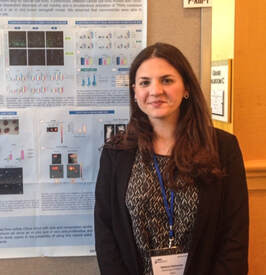
Dr. Stefania Raimondo is a post-doctoral researcher who is currently employed at the University of Palermo, Italy. In the year 2014, she obtained her Doctor of Philosophy degree in Immuno-Pharmacology from the University of Palermo under the mentorship of Professor Riccardo Alessandro. Her Doctoral and Post-doctoral studies were mainly focused on the identification of the molecular mechanisms underlying intercellular communication in cancer allowing her to develop a strong background in oncology, biomarker discovery, and inflammatory-based disorders.
During her career, she was involved in the isolation, molecular characterization, and functional roles of tumor-derived exosomes and other extracellular vesicles (EVs), which recently emerged as important mediators of the horizontal propagation of oncogenic signaling locally and at distance. During the early years of her PhD program, she worked closely with Dr. Jan Lotvall’s research group in Gotheborg, Sweden, where they demonstrated the value of studying EVs in various conditions.
In the last 8 years, Dr. Raimondo’s research interests were mainly focused on the study of vesicles isolated from plants. Particularly the interactions between plant vesicles and mammalian cells. As a result of her passion for plant EV research, she co-founded the startup Navhetec S.r.l. in 2016. Since 2019 Dr. Raimondo has been a StarShip Health Innovation fellow, an educational initiative in collaboration with leading European academic and health industry partners.
During her career, she was involved in the isolation, molecular characterization, and functional roles of tumor-derived exosomes and other extracellular vesicles (EVs), which recently emerged as important mediators of the horizontal propagation of oncogenic signaling locally and at distance. During the early years of her PhD program, she worked closely with Dr. Jan Lotvall’s research group in Gotheborg, Sweden, where they demonstrated the value of studying EVs in various conditions.
In the last 8 years, Dr. Raimondo’s research interests were mainly focused on the study of vesicles isolated from plants. Particularly the interactions between plant vesicles and mammalian cells. As a result of her passion for plant EV research, she co-founded the startup Navhetec S.r.l. in 2016. Since 2019 Dr. Raimondo has been a StarShip Health Innovation fellow, an educational initiative in collaboration with leading European academic and health industry partners.
Joint Seminar Program between Estonian University of Life Sciences and the
Polish Academy of Science, Olsztyn
The idea for a joint seminar program was put forward by Prof. Alireza Fazeli and Prof. Aneta Andronowska together to discuss and share knowledge on the amazing scientific work that the researchers from these two institutes have been doing in their specific fields of science, and with expectations of broadening our own horizons.
Session 1 (17.05.2022; 11-13 pm Helsinki time)
Session 1 (17.05.2022; 11-13 pm Helsinki time)
|
Sylwia Machcińska
Department of Biological Function of Food, Polish Academy of Science, Olsztyn |
Sylwia Machcińska is a final year PhD student at the Department of Biological Function of Food at the Polish Academy of Science in Olsztyn. She implements a research program as part of the National Science Center project entitled: , Hypoxia-inducible factor (HIF-1α) and transcription factor Foxn1 guide regenerative vs reparative skin wound healing processes' under the supervision of Prof. Barbara Gawrońska-Kozak. The results of the research and analyzes is a scientific work published in 2021 in the prestigious FASEB Journal, and currently, the second work is awaiting publication. Moreover, Sylwia is also the co-author of 6 original papers in which she participated during her PhD.
|
|
Sinith Withanage is a first-year PhD student at the Institute of Animal Reproduction and Food Research in Olsztyn. His research interests are mainly focused on the fields of electrophysiology, biophysics, physic-chemical characterizations, and hydrogels for advanced biomedical applications.
He is a former research engineer contributing to the research groups of natural nanomaterials and 3D bioprinting at “Solution chemistry for advanced materials and technology laboratory” in Saint Petersburg. He has completed his Masters’s degree in Molecular biology and biotechnology with a specialization of Nanopharmaceuticals at the National Research University of ITMO, Saint Petersburg. He has obtained his bachelor’s degree in medicine and surgery from Tianjin Medical University, China. Currently, he is working on the project titled “Voltage Across Hydrogels - A New perspective on cell’s membrane potential” under the supervision of Dr. Magdalena Kowacz. |
Sinith Withanage
Institute of Animal Reproduction and Food Research, Olsztyn |
|
Kasun Godakumara
Institute of Biomedicine and translational medicine, University of Tartu, Estonia. |
Kasun Godakumara is a final-year Ph.D. student at the University of Tartu. He started his research career at the University of Peradeniya, Sri Lanka where he studied hard tissue biology in osteoporosis conditions. He earned his Bachelor’s in Medical Laboratory Science and Master of Philosophy in Biotechnology from the University of Peradeniya in 2013 and 2016 respectively. After being employed as a laboratory analyst in the chemical pathology sector, he joined the University of Tartu as a doctoral student in 2018. He was attached to the ERA Chair of Translational Genomics (TransGeno) under the supervision of Prof Alireza Fazeli. His studies are focused on extracellular vesicle-based embryo maternal communication.
|
Guest lecture by Prof. Dr. Jennifer Schoen and Dr. Shuai Chen,
Leibniz Institute for Zoo and Wildlife Research (IZW), Berlin, Germany
|
Join the COMBIVET ERA Chair of the Estonian University of Life Sciences for a guest lecture by Prof. Dr. Jennifer Schoen and Dr. Shuai Chen, Leibniz Institute for Zoo and Wildlife Research (IZW), Berlin, Germany. They will talk about their latest research into “Application of compartmentalized in vitro models to explore maternal interactions with gametes and early embryos”. Prof. Schoen’s group investigates reproductive adaptations underlying different reproductive strategies in mammals and the impact of environmental factors on fertility. They are interested in cell biological and molecular mechanisms of reproductive processes and their hormonal regulation and establish and optimize new methods for assisted reproduction and contact-free/minimally invasive hormone monitoring of wild animals. |
|
Jennifer Schoen
|
Jennifer Schoen is Head of the Department of Reproduction Biology at the Leibniz Institute for Zoo and Wildlife Research (IZW) and Professor of Cellular Reproduction Biotechnology at the Institute of Biotechnology, Technische Universität Berlin, Germany. She has studied Veterinary Medicine in Berlin and completed her doctoral thesis at the Institute for Zoo and Wildlife Research.
After a postdoctoral period in the Institute of Veterinary Biochemistry at the Freie Universität Berlin and short stays at the University of Concepcion, Chile, and at Charité Berlin, she took over the Reproductive Cell Biology Unit at the Research Institute for Farm Animal Biology in Dummerstorf, Germany, in 2014 before she returned to the IZW in 2021. Prof. Schoen’s group investigates reproductive adaptations underlying different reproductive strategies in mammals and the impact of environmental factors on fertility. They are interested in cell biological and molecular mechanisms of reproductive processes and their hormonal regulation and establish and optimize new methods for assisted reproduction and contact-free/minimally invasive hormone monitoring of wild animals. |
|
Shuai Chen is currently working at the Department of Reproduction Biology, Leibniz Institute for Zoo and Wildlife Research (IZW) as the head of the Cell Culture Lab. Early embryonic development is a particularly sensitive phase that critically depends on a complex network of embryo-maternal interactions. It is crucial not only for the course of pregnancy but also for the individual’s health in later phases of life. Her main research field is animal reproductive biology, particularly focusing on events during the early stage of embryo development in domestic and wild animals. Her current research interests include: in vitro models of the female reproductive tract, actions of steroid hormones, preimplantation maternal stress, and extracellular vesicles as mediators in embryo-maternal crosstalk. The objective is to improve our understanding of the dynamic milieu of the oviduct and uterus and the signal exchanges between early gametes/embryos and the mother in health and disease, with the long-term goal to improve animal fertility and pregnancy outcome.
|
Shuai Chen
|
Guest lecture by Prof. Masako Harada, The Institute for Quantitative Health
Science & Engineering, Michigan state University, USA
Seminar by Masako Harada PhD on 22nd March
|
Join the COMBIVET ERA Chair of the Estonian University of Life Sciences for a guest lecture by Prof. Masako Harada from The Institute for Quantitative Health Science & Engineering, Michigan state University, USA. Prof. Harada will talk about her latest research into “Engineering extracellular vesicles for targeted therapeutic delivery”.
Prof. Harada received her undergraduate degree in molecular genetics from King’s College London. She earned her Ph.D. in experimental oncology from Karolinska Institute in Sweden and conducted her postdoctoral training in cancer chemotherapy at Stanford University. Her lab is currently working on targeted epigenetic therapy using engineered EV-CRISPR/dCas9 system, EV mediated microRNA delivery for cancer therapy and development of “therapeutic guide proteins” using an in vivo EV-display screen. The ultimate goal of her research is to translate basic scientific findings into clinical applications. The lecture would take place via Zoom on 22nd of March 2022 at 15.00 Estonian time. Zoom link: https://bit.ly/3MuL7lR |










